
Skills4EOSC Courses and Master Trainers
Are you planning to organise a Skills4EOSC training course in your community and looking for a certified trainer?
Here you can find the list of Course Trainers and Master Trainers who have successfully completed the Skills4EOSC training programmes and are qualified to deliver courses across Europe.
Each trainer has participated in one of the following thematic programmes developed within the project:
- Science4Policy – Open Science for evidence-informed decision making and public administration
- Open Science Ready Institutions – Shaping PhD trainers in Open Science practices
- SSH Research – Open Science and FAIR practices for Social Sciences and Humanities
- Solid Earth Science – Data stewardship and Open Science in Earth and Environmental Sciences
- Climate change - Open Science for Early Career Researchers in Climate Change
- Digital Collection Curators – FAIR data and Open Science for cultural heritage and digital collections
Trainers details
Browse the profiles to connect with trainers who can help you bring Skills4EOSC knowledge and practices to your institution or national community.
Open Science for evidence-informed decision making and public administration
-
Nana Anastasopoulou
National Infrastructures for Research and Technology S.A.
This email address is being protected from spambots. You need JavaScript enabled to view it. 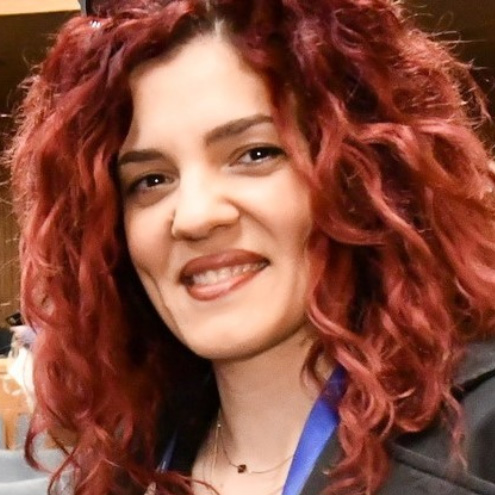 Nana Anastasopoulou is a Project Manager at GRNET, working on European projects. Within Skills4EOSC, she served as Task Leader for T8.2 – Synergies with EOSC-related projects and initiatives, and was part of the WP3 team focusing on Open Science training for evidence-based policy. At the national level, she is a member of the coordinating team of the Greek Open Science Competence Centre
Nana Anastasopoulou is a Project Manager at GRNET, working on European projects. Within Skills4EOSC, she served as Task Leader for T8.2 – Synergies with EOSC-related projects and initiatives, and was part of the WP3 team focusing on Open Science training for evidence-based policy. At the national level, she is a member of the coordinating team of the Greek Open Science Competence Centre -
Betty Evangelinou
National Infrastructures for Research and Technology (GRNET)
This email address is being protected from spambots. You need JavaScript enabled to view it. 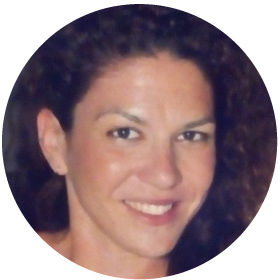 Betty Evangelinou is a Senior Project Manager at the National Infrastructures for Research and Technology (GRNET) in Greece. She holds a Diploma in Electrical and Computer Engineering from the Aristotle University of Thessaloniki, and has participated in numerous national and European co-funded projects as a Project Manager and/or Technical Consultant. Her experience covers EU innovation project and financial management, business development, and R&D proposal writing, with expertise in UI/UX, business analysis, and quality control of IT solutions.
Betty Evangelinou is a Senior Project Manager at the National Infrastructures for Research and Technology (GRNET) in Greece. She holds a Diploma in Electrical and Computer Engineering from the Aristotle University of Thessaloniki, and has participated in numerous national and European co-funded projects as a Project Manager and/or Technical Consultant. Her experience covers EU innovation project and financial management, business development, and R&D proposal writing, with expertise in UI/UX, business analysis, and quality control of IT solutions.
Within Skills4EOSC, she coordinated the “Open Science and Evidence-Informed Decision Making” training programme, led the development of the curriculum and Train-the-Trainer courses for policymakers, civil servants, and honest brokers, and served as a trainer on topics such as capacity building in Open Science, evidence-informed decision making, and data visualisation. -
Emma Lazzeri
Consiglio Nazionale delle Ricerche (CNR), Italy
This email address is being protected from spambots. You need JavaScript enabled to view it. 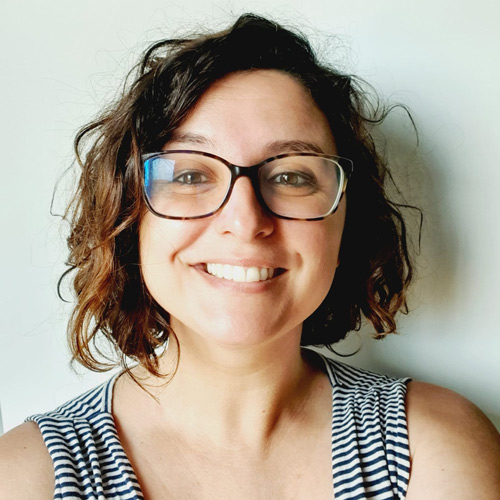 Dr Emma Lazzeri, PhD, is with the Italian National Research Council (Consiglio Nazionale delle Ricerche - CNR) where she is responsible for the Open Science Section under the General Direction. She previously worked for GARR as Open Science manager, working on defining strategies, tools and in disseminating and training on Open Science, and she was the coordinator of Skills4EOSC, a Horizon Europe Coordination and Support Action aiming at creating a Coordination Network of Competence Centres in the EOSC and Open Science context. She is a member of the expert group of the Italian Ministry for University and Research, working to implement the Open Science National Plan and Italian Representative of the Commission expert group on National Points of Reference on Scientific Information. At the national level, she coordinates the Task Force that aims at realising the national Competence Centre for Open Science, FAIR data and EOSC, within the ICDI (Italian Computing and Data Infrastructure). She has participated in various expert groups at national and European levels as the European Open Science Cloud (EOSC) Executive Board Working Group on Training and Skills, the Horizon Group of experts for a study on repositories for publications and research data (ERC Executive Agency), and the Open Science Monitor Expert Group of the European Commission. She coordinated from 2018 to 2021 the Italian National Open Access Desks (NOADs) of OpenAIRE and the Italian Research Data Alliance Node. Emma has been involved in several projects in the EOSC context as the EOSC-Pillar project and EOSCSecretariat.eu. She is a member of the Community of Practice for Training Coordinators in Open Science. Her research interests are in Open Science, including policies, best practices, and strategies. Emma is involved as a speaker in many international and national conferences in the field of Open Science and Scholarly Communication. She holds a PhD in Innovative technology - Telecommunications from Scuola Superiore Sant’Anna, Pisa, Italy and a MSc and BSc in Telecommunication engineering from Università di Pisa, Italy.
Dr Emma Lazzeri, PhD, is with the Italian National Research Council (Consiglio Nazionale delle Ricerche - CNR) where she is responsible for the Open Science Section under the General Direction. She previously worked for GARR as Open Science manager, working on defining strategies, tools and in disseminating and training on Open Science, and she was the coordinator of Skills4EOSC, a Horizon Europe Coordination and Support Action aiming at creating a Coordination Network of Competence Centres in the EOSC and Open Science context. She is a member of the expert group of the Italian Ministry for University and Research, working to implement the Open Science National Plan and Italian Representative of the Commission expert group on National Points of Reference on Scientific Information. At the national level, she coordinates the Task Force that aims at realising the national Competence Centre for Open Science, FAIR data and EOSC, within the ICDI (Italian Computing and Data Infrastructure). She has participated in various expert groups at national and European levels as the European Open Science Cloud (EOSC) Executive Board Working Group on Training and Skills, the Horizon Group of experts for a study on repositories for publications and research data (ERC Executive Agency), and the Open Science Monitor Expert Group of the European Commission. She coordinated from 2018 to 2021 the Italian National Open Access Desks (NOADs) of OpenAIRE and the Italian Research Data Alliance Node. Emma has been involved in several projects in the EOSC context as the EOSC-Pillar project and EOSCSecretariat.eu. She is a member of the Community of Practice for Training Coordinators in Open Science. Her research interests are in Open Science, including policies, best practices, and strategies. Emma is involved as a speaker in many international and national conferences in the field of Open Science and Scholarly Communication. She holds a PhD in Innovative technology - Telecommunications from Scuola Superiore Sant’Anna, Pisa, Italy and a MSc and BSc in Telecommunication engineering from Università di Pisa, Italy. -
Päivi Rauste
CSC – IT Center for Science
This email address is being protected from spambots. You need JavaScript enabled to view it. 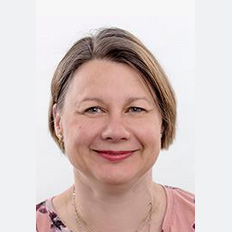 Päivi Rauste works as a Service Manager at CSC – IT Centre for Science´s Research Data Management Competence Centre. She promotes open science and good research data management practices. She also plans and organises data management training activities. Päivi Rauste participates in the Skills4EOSC project, where she collaborates with other European countries to promote open science and data management skills. Previously, she has been involved in the EOSCpilot and EOSC-Nordic projects.
Päivi Rauste works as a Service Manager at CSC – IT Centre for Science´s Research Data Management Competence Centre. She promotes open science and good research data management practices. She also plans and organises data management training activities. Päivi Rauste participates in the Skills4EOSC project, where she collaborates with other European countries to promote open science and data management skills. Previously, she has been involved in the EOSCpilot and EOSC-Nordic projects.
Päivi Rauste is a member of the steering group of the Nordic Data Stewardship Network and a member of the advisory board of the University of Tampere's data management training development project. Päivi holds a Master's degree in Economics and is a vocational teacher. -
Elena Ritschard
until July 2025 NHMW
https://orcid.org/0000-0002-4956-9703
This email address is being protected from spambots. You need JavaScript enabled to view it. 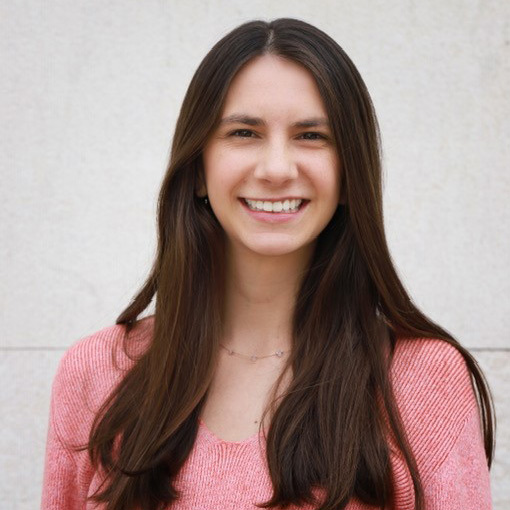 Elena Ritschard holds a PhD in Biology from the University of Vienna, where she researched the evolution of cephalopod (i.e., octopus, squid and cuttlefish) genomes. She has worked at the Natural History Museum of Vienna as a science communicator, doing guided tours and workshops, and as a project associate of Open Science (OS) projects. As part of the Skills4EOSC team, she was involved in designing and delivering OS courses tailored to the specific training needs of research infrastructures holding scientific collections (e.g., libraries, archives, museums and universities). Within this position, she has also worked on promoting international professional networks of scientific collections curators and data stewards, and on stakeholder engagement of policy- and decision-makers in Austria on OS-related issues.
Elena Ritschard holds a PhD in Biology from the University of Vienna, where she researched the evolution of cephalopod (i.e., octopus, squid and cuttlefish) genomes. She has worked at the Natural History Museum of Vienna as a science communicator, doing guided tours and workshops, and as a project associate of Open Science (OS) projects. As part of the Skills4EOSC team, she was involved in designing and delivering OS courses tailored to the specific training needs of research infrastructures holding scientific collections (e.g., libraries, archives, museums and universities). Within this position, she has also worked on promoting international professional networks of scientific collections curators and data stewards, and on stakeholder engagement of policy- and decision-makers in Austria on OS-related issues. -
Angeliki Adamaki
Lund University, Sweden
0000-0001-7070-8352
This email address is being protected from spambots. You need JavaScript enabled to view it. 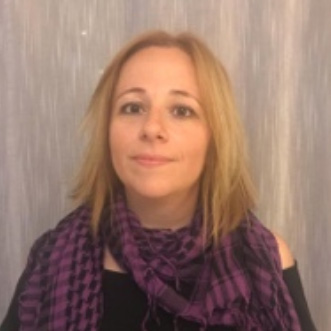 Dr Angeliki Adamaki is a scientist and project manager at Lund University in Sweden, currently working at the Synchrotron User Facility MAX IV. Over the past 7 years, she has worked on European projects such as ENVRI-Hub Next, the OSCARS-funded project HOMEROS, ENVRI-FAIR, and EOSC Future. Her work focuses on Open Science and FAIR data management to support interdisciplinary research with RI services. She chairs the LU Open Science Champions and supports OS Community Lund (OSCL), a bottom-up initiative within the International Network of Open Science Communities (INOSC).
Dr Angeliki Adamaki is a scientist and project manager at Lund University in Sweden, currently working at the Synchrotron User Facility MAX IV. Over the past 7 years, she has worked on European projects such as ENVRI-Hub Next, the OSCARS-funded project HOMEROS, ENVRI-FAIR, and EOSC Future. Her work focuses on Open Science and FAIR data management to support interdisciplinary research with RI services. She chairs the LU Open Science Champions and supports OS Community Lund (OSCL), a bottom-up initiative within the International Network of Open Science Communities (INOSC). -
Dario Basset
University of Milan
This email address is being protected from spambots. You need JavaScript enabled to view it. 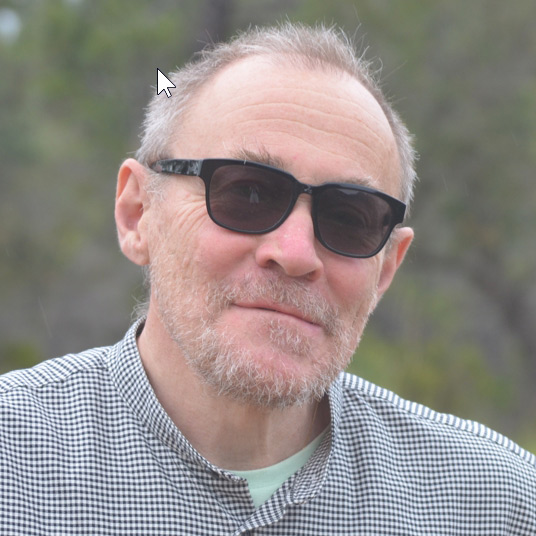 Dario Basset works at the University of Milan. He deals with the University's tools for research data and more generally with open science. He is involved in training activities regarding research data and related tools, and has been dealing with the data quality of the Dataverse repository for over 3 years.
Dario Basset works at the University of Milan. He deals with the University's tools for research data and more generally with open science. He is involved in training activities regarding research data and related tools, and has been dealing with the data quality of the Dataverse repository for over 3 years. -
Lucia Corti
Italian Institute of Technology
This email address is being protected from spambots. You need JavaScript enabled to view it. 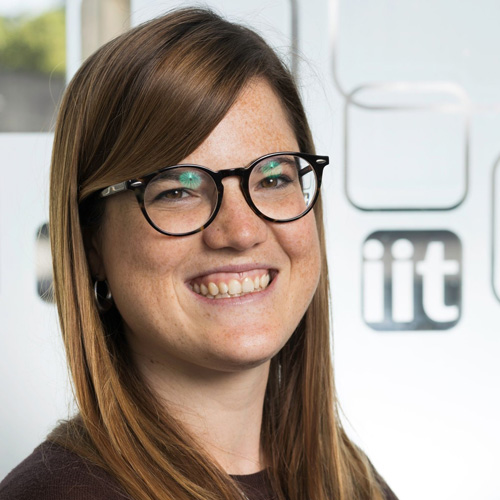 Lucia Corti is currently a Data Steward at the Italian Institute of Technology, where she supports STEM researchers in the responsible management of data throughout all stages of the research cycle. As a PhD graduate from the University of Liverpool, Lucia has previously worked on several collaborative research projects involving teams across the fields of chemistry, materials science, and scientific computing. Lucia has received the Skills4EOSC instructor badge for the “Open Science and Evidence-Informed Decision Making” curriculum.
Lucia Corti is currently a Data Steward at the Italian Institute of Technology, where she supports STEM researchers in the responsible management of data throughout all stages of the research cycle. As a PhD graduate from the University of Liverpool, Lucia has previously worked on several collaborative research projects involving teams across the fields of chemistry, materials science, and scientific computing. Lucia has received the Skills4EOSC instructor badge for the “Open Science and Evidence-Informed Decision Making” curriculum. -
Silvi-Maria Todorova Gurova
Institute of Information and Communication Technologies - Bulgarian Academy of Sciences (IICT-BAS)
This email address is being protected from spambots. You need JavaScript enabled to view it. 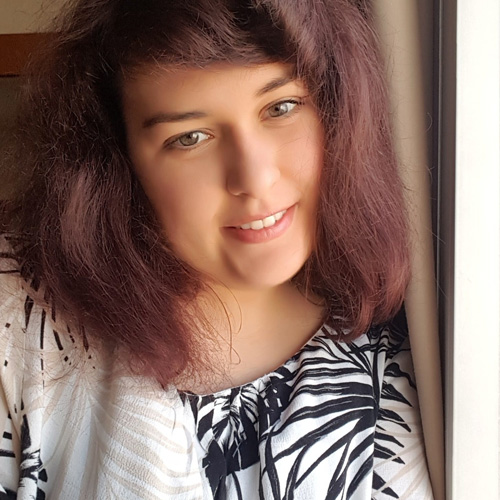 Silvi-Maria Gurova is an assistant professor at the Department of "Scalable Algorithms and Cybersecurity with the HPC Centre" at the Institute of Information and Communication Technologies of the Bulgarian Academy of Sciences (IICT-BAS). She holds a master's degree in applied mathematics from the Faculty of Mathematics and Informatics at Sofia University "St. Kliment Ohridski". Her research interests include MC and QMC methods, HPC and cloud computing, statistical models, and their applications in air pollution problems, financial mathematics, and more. She represents young scientists and PhD students in information and communication technologies in the general assembly of the Bulgarian Academy of Sciences. Over the past 10 years, she has published more than 15 papers in peer-reviewed conferences and journals, listed in Scopus, Google Scholar, and other scientific databases. Currently, Silvi-Maria Gurova is in the process of defending her PhD thesis. She has participated in several EU projects, such as VI-SEEM, NI4OS-Europe, EuroCC, and various national projects.
Silvi-Maria Gurova is an assistant professor at the Department of "Scalable Algorithms and Cybersecurity with the HPC Centre" at the Institute of Information and Communication Technologies of the Bulgarian Academy of Sciences (IICT-BAS). She holds a master's degree in applied mathematics from the Faculty of Mathematics and Informatics at Sofia University "St. Kliment Ohridski". Her research interests include MC and QMC methods, HPC and cloud computing, statistical models, and their applications in air pollution problems, financial mathematics, and more. She represents young scientists and PhD students in information and communication technologies in the general assembly of the Bulgarian Academy of Sciences. Over the past 10 years, she has published more than 15 papers in peer-reviewed conferences and journals, listed in Scopus, Google Scholar, and other scientific databases. Currently, Silvi-Maria Gurova is in the process of defending her PhD thesis. She has participated in several EU projects, such as VI-SEEM, NI4OS-Europe, EuroCC, and various national projects. -
Fernando Josa Prado
University of Turin
email
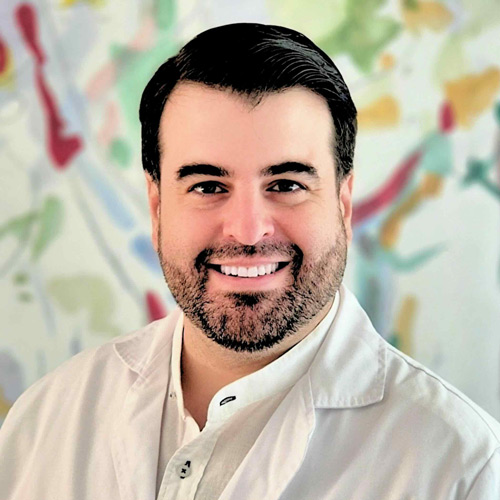 Dr Fernando Josa Prado is a molecular and cell biologist with a multidisciplinary background from basic neurobiology to drug discovery and translational research. Currently a Marie Skłodowska-Curie Postdoctoral Fellow at the University of Turin (NICO), he investigates myelin biology and demyelinating disorders. With over 3000 hours of accredited university teaching experience, Dr Josa Prado has combined academic leadership with active engagement in science policy and diplomacy, research career development, research management and has won innovation transfer awards. He has been recognised as a European Commission expert evaluator, is a founder of several science-for-society initiatives and is a board member of GADEA Foundation, which gathers the 500 most relevant researchers in Spain.
Dr Fernando Josa Prado is a molecular and cell biologist with a multidisciplinary background from basic neurobiology to drug discovery and translational research. Currently a Marie Skłodowska-Curie Postdoctoral Fellow at the University of Turin (NICO), he investigates myelin biology and demyelinating disorders. With over 3000 hours of accredited university teaching experience, Dr Josa Prado has combined academic leadership with active engagement in science policy and diplomacy, research career development, research management and has won innovation transfer awards. He has been recognised as a European Commission expert evaluator, is a founder of several science-for-society initiatives and is a board member of GADEA Foundation, which gathers the 500 most relevant researchers in Spain. -
Aleksandar Kirilov
Institute of Information and Communication Technologies - Bulgarian Academy of Sciences (IICT-BAS)
This email address is being protected from spambots. You need JavaScript enabled to view it. 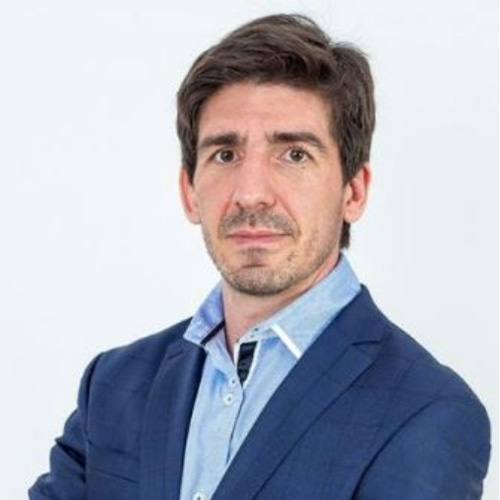 Aleksandar Kirilov (m) is an assistant professor at the Department of "Scalable Algorithms and Cybersecurity with the HPC Centre" at the Institute of Information and Communication Technologies of the Bulgarian Academy of Sciences (IICT-BAS). He holds a master's degree in Automation, Information and Control Engineering (Bioelectrical engineering) at the Technical University of Sofia, Bulgaria. His research interests include the Design of systems for bioinformatics data processing, analyses of algorithms, methods and services for efficient processing of large volumes of data on high-performance computing clusters, development and maintenance of HPC and cloud services. Over the past few years, he has published 3 papers in peer-reviewed conferences and journals, listed in Scopus, Google Scholar, and other scientific databases. Currently, he has participated in several EU projects: EuroCC/EuroCC2 and various national projects.
Aleksandar Kirilov (m) is an assistant professor at the Department of "Scalable Algorithms and Cybersecurity with the HPC Centre" at the Institute of Information and Communication Technologies of the Bulgarian Academy of Sciences (IICT-BAS). He holds a master's degree in Automation, Information and Control Engineering (Bioelectrical engineering) at the Technical University of Sofia, Bulgaria. His research interests include the Design of systems for bioinformatics data processing, analyses of algorithms, methods and services for efficient processing of large volumes of data on high-performance computing clusters, development and maintenance of HPC and cloud services. Over the past few years, he has published 3 papers in peer-reviewed conferences and journals, listed in Scopus, Google Scholar, and other scientific databases. Currently, he has participated in several EU projects: EuroCC/EuroCC2 and various national projects. -
William R. Illsley
Forskningsrådgivare, Svensk nationelldatatjänst/ Research data advisor, Swedish National Data Service
https://orcid.org/0000-0002-8917-663X
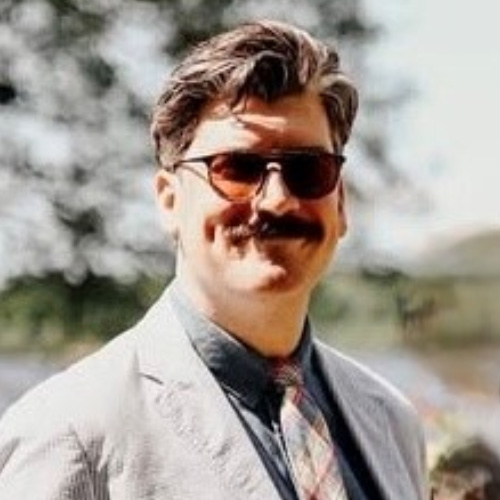 William is a research data advisor working for the Swedish National Data Service, with a focus on heritage and archaeological data. His main areas of expertise are GIS and 3D data, as well as relevant metadata standards and standards in the Humanities. William has taken part in Skills4EOSC as co-WP leader for Work Package: Synergies, stakeholder engagement, advocacy and communication, as well as currently participating in the ATRIUM project. His research background focuses on the communication and transmission of heritage through digital technologies in contexts varying from museums, tourism opportunities and heritage boards.
William is a research data advisor working for the Swedish National Data Service, with a focus on heritage and archaeological data. His main areas of expertise are GIS and 3D data, as well as relevant metadata standards and standards in the Humanities. William has taken part in Skills4EOSC as co-WP leader for Work Package: Synergies, stakeholder engagement, advocacy and communication, as well as currently participating in the ATRIUM project. His research background focuses on the communication and transmission of heritage through digital technologies in contexts varying from museums, tourism opportunities and heritage boards. -
Marianna Laviola
Italian Institute of Technology
This email address is being protected from spambots. You need JavaScript enabled to view it. 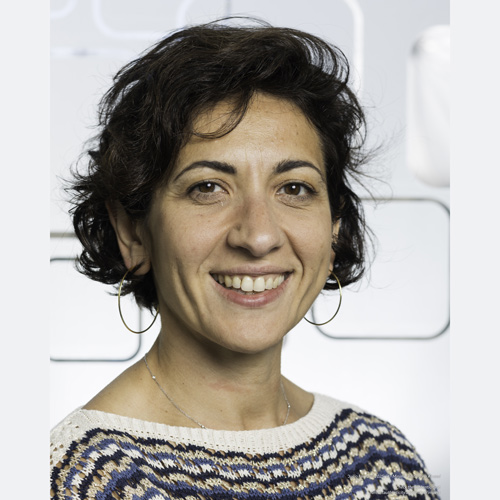 Marianna Laviola is a Data Steward at the Italian Institute of Technology, where she supports researchers across diverse STEM domains in the responsible management of research data. She actively promotes Open Science practices and evidence-informed decision-making.
With a background in bioengineering of cardiopulmonary systems, Marianna previously worked as an Assistant Professor at the University of Nottingham (UK), focusing on computational and mathematical models for intensive care settings.
Marianna Laviola is a Data Steward at the Italian Institute of Technology, where she supports researchers across diverse STEM domains in the responsible management of research data. She actively promotes Open Science practices and evidence-informed decision-making.
With a background in bioengineering of cardiopulmonary systems, Marianna previously worked as an Assistant Professor at the University of Nottingham (UK), focusing on computational and mathematical models for intensive care settings. -
Marco Morelli
Open Science Team, Vita-Salute San Raffaele University
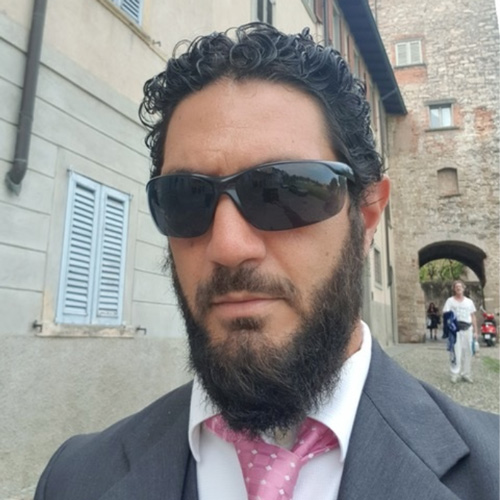 Marco Morelli is a physicist by background who has increasingly shifted his focus toward biology and medicine. He currently coordinates the bioinformatics activities at the sequencing facility of San Raffaele Hospital in Milan. At the same time, he is an active member of the Open Science team at San Raffaele University, where he supports researchers and clinicians in managing their research data — from writing Data Management Plans (DMPs) to ensuring long-term data preservation.
Marco Morelli is a physicist by background who has increasingly shifted his focus toward biology and medicine. He currently coordinates the bioinformatics activities at the sequencing facility of San Raffaele Hospital in Milan. At the same time, he is an active member of the Open Science team at San Raffaele University, where he supports researchers and clinicians in managing their research data — from writing Data Management Plans (DMPs) to ensuring long-term data preservation. -
Elda Osmenaj
Italian Institute of Technology (IIT)
This email address is being protected from spambots. You need JavaScript enabled to view it. 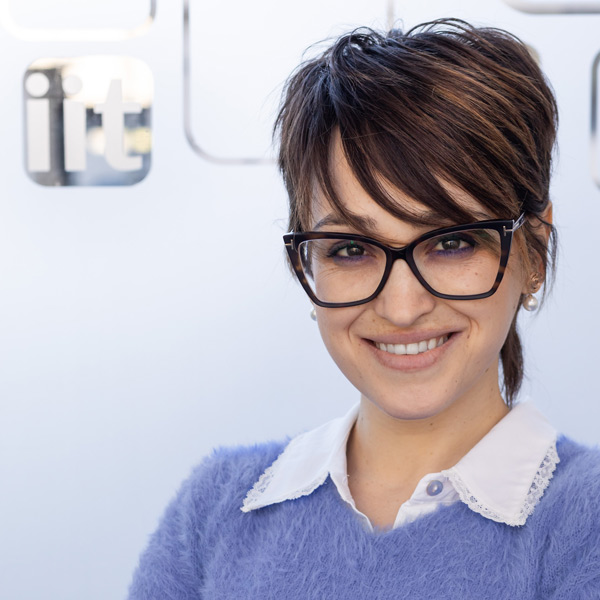 Data Steward at the Italian Institute of Technology, with experience in European projects and a background in life sciences. Skilled in research data management, community engagement, FAIR data practices and project assistant through roles at IIT, CNR, AREA Science Park, and Elettra Sincrotrone Trieste. Steering board member of the Italian Community of Data Stewards. Passionate about art and painting, bringing creativity into problem-solving and innovation.
Data Steward at the Italian Institute of Technology, with experience in European projects and a background in life sciences. Skilled in research data management, community engagement, FAIR data practices and project assistant through roles at IIT, CNR, AREA Science Park, and Elettra Sincrotrone Trieste. Steering board member of the Italian Community of Data Stewards. Passionate about art and painting, bringing creativity into problem-solving and innovation. -
Elena Partescano
National Institute of Oceanography and Applied Geophysics - OGS - Italy
This email address is being protected from spambots. You need JavaScript enabled to view it. 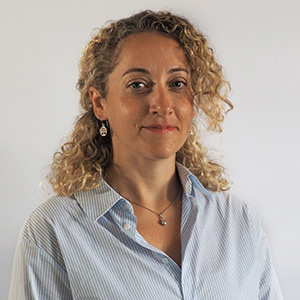 Elena Partescano is a data steward with expertise in managing, validating, analysing, and organising oceanographic data within relational databases.
She supports real-time and delayed monitoring systems and works with SQL on Unix/Linux, metadata via XML and Mikado, XSLT, and GIS platforms.
Elena also designs data entry interfaces, manages XML DB and XQuery, configures RESTful services, and ensures compliance with OGC standards for metadata
catalogues and observations, and promotes open science, and represents Italy in major European marine observation programs.
Elena Partescano is a data steward with expertise in managing, validating, analysing, and organising oceanographic data within relational databases.
She supports real-time and delayed monitoring systems and works with SQL on Unix/Linux, metadata via XML and Mikado, XSLT, and GIS platforms.
Elena also designs data entry interfaces, manages XML DB and XQuery, configures RESTful services, and ensures compliance with OGC standards for metadata
catalogues and observations, and promotes open science, and represents Italy in major European marine observation programs. -
Cristiana Pisoni
Università degli studi di Bergamo
This email address is being protected from spambots. You need JavaScript enabled to view it. 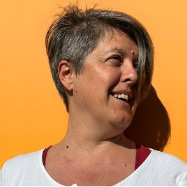 Librarian and Research Support Specialist with extensive experience in university libraries, particularly in the management of institutional repositories and the development of training programs for doctoral students and early-career researchers. Passionate advocate of Open Science, with solid expertise in open access policies, publication strategies, research metrics, and bibliometrics. Provides support in the implementation of transformative agreements, monitoring APC costs and guiding researchers in open access publishing. Strong communicator and problem-solver, experienced in cross-functional collaboration, metadata curation, and technical systems such as SQL databases and digital repositories.
Librarian and Research Support Specialist with extensive experience in university libraries, particularly in the management of institutional repositories and the development of training programs for doctoral students and early-career researchers. Passionate advocate of Open Science, with solid expertise in open access policies, publication strategies, research metrics, and bibliometrics. Provides support in the implementation of transformative agreements, monitoring APC costs and guiding researchers in open access publishing. Strong communicator and problem-solver, experienced in cross-functional collaboration, metadata curation, and technical systems such as SQL databases and digital repositories. -
Arianna Rossi
Sant'Anna School of Advanced Studies
This email address is being protected from spambots. You need JavaScript enabled to view it. 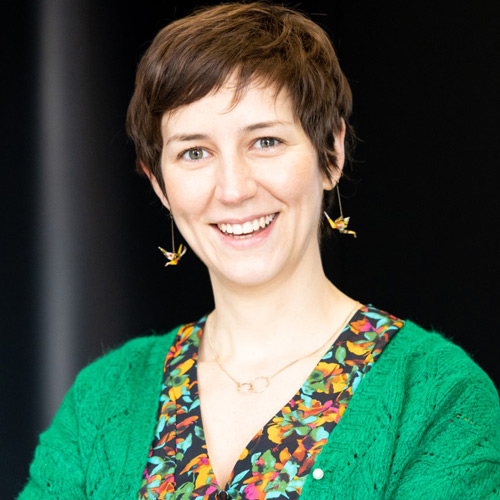 Arianna Rossi is a research affiliate of the LIDER Lab at Sant’Anna School of Advanced Studies (Pisa, Italy), where she coordinates the legal and compliance research activities related to bioengineering studies. She is an expert in usable privacy, digital manipulation, and legal design, topics on which she has published extensively in international venues. Arianna has a mixed background, with a joint international Doctoral Degree in Law, Science and Technology (University of Bologna) and a Ph.D. degree in Computer Science (University of Luxembourg). She has been an invited speaker at international conferences and regularly teaches courses on law, design, and technology to academic students and practitioners.
Arianna Rossi is a research affiliate of the LIDER Lab at Sant’Anna School of Advanced Studies (Pisa, Italy), where she coordinates the legal and compliance research activities related to bioengineering studies. She is an expert in usable privacy, digital manipulation, and legal design, topics on which she has published extensively in international venues. Arianna has a mixed background, with a joint international Doctoral Degree in Law, Science and Technology (University of Bologna) and a Ph.D. degree in Computer Science (University of Luxembourg). She has been an invited speaker at international conferences and regularly teaches courses on law, design, and technology to academic students and practitioners.
Shaping PhD trainers in Open Science practices
-
Eva Méndez
Universidad Carlos III de Madrid (UC3M)
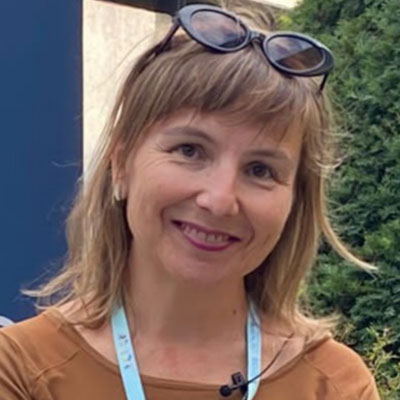 Eva Méndez is a Professor at Library and Information Science Department at Universidad Carlos III de Madrid (UC3M), where she leads the OpenScienceLab: Meta-Research for Open Science. Dra. Méndez has more than ten years of experience in research, policy and training in Open Science, and played a key role as WP4 leader in Skills4EOSC. Her expertise combines academic leadership, policy engagement, and hands-on training. She served as Chair of the European Open Science Policy Platform (2018–2020), Member of the CoARA Steering Board (2022–2024), and RDA Ambassador for Interdisciplinary Research, contributing to shaping European (EOSC, CoARA) and Spanish (ENCA) Open Science strategies.
Eva Méndez is a Professor at Library and Information Science Department at Universidad Carlos III de Madrid (UC3M), where she leads the OpenScienceLab: Meta-Research for Open Science. Dra. Méndez has more than ten years of experience in research, policy and training in Open Science, and played a key role as WP4 leader in Skills4EOSC. Her expertise combines academic leadership, policy engagement, and hands-on training. She served as Chair of the European Open Science Policy Platform (2018–2020), Member of the CoARA Steering Board (2022–2024), and RDA Ambassador for Interdisciplinary Research, contributing to shaping European (EOSC, CoARA) and Spanish (ENCA) Open Science strategies.
As a trainer, she has designed and delivered innovative Open Science curricula for PhD candidates, early-career researchers, and data stewards, embedding FAIR data, reproducibility, and responsible research assessment into higher education. She and the OpenScienceLab members coordinate the Spanish Reproducibility Network (SPRN) and Open Science Community Madrid, and they have formalised the Spanish Competence Centre in July 2025.
Open Science and FAIR practices for Social Sciences and Humanities
-
Fotis Mystakopoulos
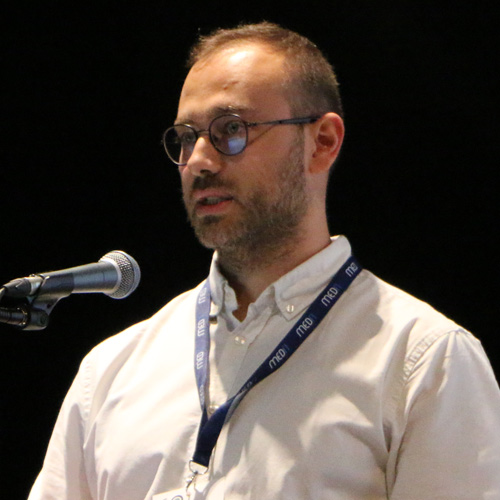 Fotis Mystakopoulos is a Project Policy Officer actively involved in several EU-funded projects that advance the implementation of Open Science practices. His work includes developing FAIR-by-design training materials and contributing to the reform of research assessment to better recognise and reward Open Science practices. He holds an MSc in Information Science (2021), with a thesis focusing on Plan S and its implications for scholarly communication from a UK perspective. Fotis also serves as an EOSC FAIR Champion for the FAIR-IMPACT project, supporting the uptake and integration of FAIR principles across the research ecosystem.
Fotis Mystakopoulos is a Project Policy Officer actively involved in several EU-funded projects that advance the implementation of Open Science practices. His work includes developing FAIR-by-design training materials and contributing to the reform of research assessment to better recognise and reward Open Science practices. He holds an MSc in Information Science (2021), with a thesis focusing on Plan S and its implications for scholarly communication from a UK perspective. Fotis also serves as an EOSC FAIR Champion for the FAIR-IMPACT project, supporting the uptake and integration of FAIR principles across the research ecosystem. -
Karla Avanço
OPERAS / OpenEdition, Marseille, France
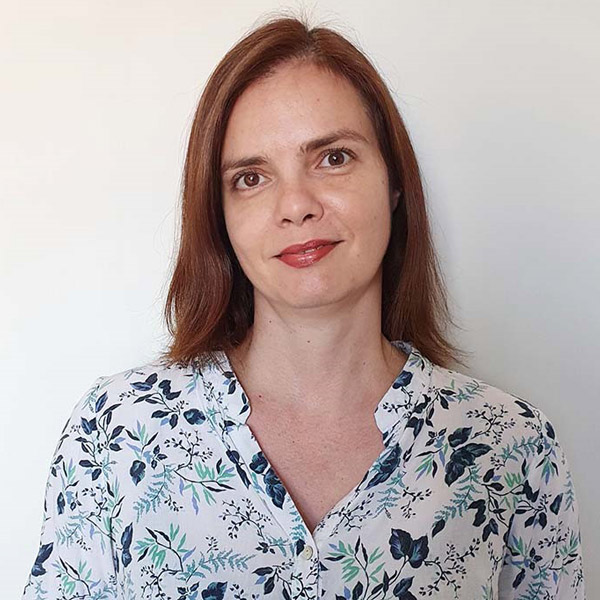 Karla Avanço is the Capacity Building Manager of OPERAS. She holds a PhD in Languages and Linguistics and has over ten years of experience in education and training. After transitioning to scholarly communication, she now works on promoting the diffusion and adoption of Open Science and Open Access practices, with a special focus on developing the Diamond OA model. Her expertise includes education and training, community management and engagement, Open Science, and Diamond OA publishing.
Karla Avanço is the Capacity Building Manager of OPERAS. She holds a PhD in Languages and Linguistics and has over ten years of experience in education and training. After transitioning to scholarly communication, she now works on promoting the diffusion and adoption of Open Science and Open Access practices, with a special focus on developing the Diamond OA model. Her expertise includes education and training, community management and engagement, Open Science, and Diamond OA publishing. -
Mònica López-Prat
National Research Council of Italy (CNR), Institute of Heritage Science (ISPC)
This email address is being protected from spambots. You need JavaScript enabled to view it. 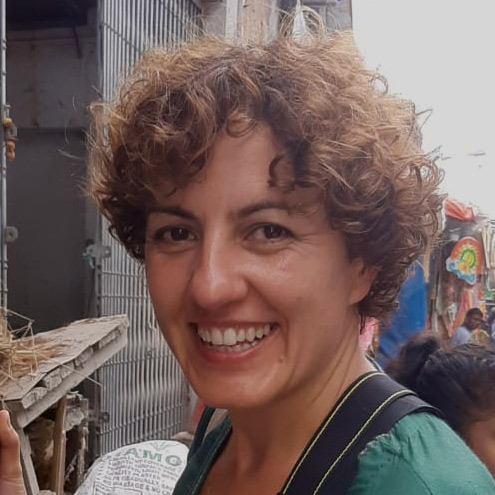 Mònica López-Prat is a conservator of cultural heritage and postdoctoral researcher at the Italian National Research Council’s Institute of Heritage Science (CNR-ISPC), supported by a Marie Skłodowska-Curie Fellowship. She leads the Horizon-funded project TANTRiC (Traditional Knowledge for the Conservation of Silk Roads Monumental Terracruda Sculptures, 2024–2026), which explores traditional practices to develop innovative approaches for preserving monumental terracruda Buddhist sculptures. Her work bridges ancient traditions and cutting-edge science, promoting the integration of traditional knowledge and environmentally responsible materials in cultural heritage conservation.
Mònica López-Prat is a conservator of cultural heritage and postdoctoral researcher at the Italian National Research Council’s Institute of Heritage Science (CNR-ISPC), supported by a Marie Skłodowska-Curie Fellowship. She leads the Horizon-funded project TANTRiC (Traditional Knowledge for the Conservation of Silk Roads Monumental Terracruda Sculptures, 2024–2026), which explores traditional practices to develop innovative approaches for preserving monumental terracruda Buddhist sculptures. Her work bridges ancient traditions and cutting-edge science, promoting the integration of traditional knowledge and environmentally responsible materials in cultural heritage conservation. -
Tomás Alves
Business Research Unit (BRU), University Institute of Lisbon (ISCTE-IUL)
https://orcid.org/0000-0002-5866-9327
This email address is being protected from spambots. You need JavaScript enabled to view it. 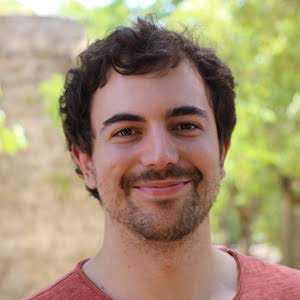 Tomás Alves is a tenure-track Assistant Researcher at the Business Research Unit (BRU), University Institute of Lisbon (ISCTE-IUL). He is also Co-Coordinator for Visualisation at the Digitalisation and Advanced Visualisation Data Laboratory (DAViD Lab-Iscte). His research focuses on information visualisation and human–computer interaction, to improve how users discover, interpret, and make decisions based on visual information. His main research lines include studying cognitive and personality traits in user interaction, mitigating perceptual and cognitive biases in visualisation-supported decision-making, and analysing how information disorder techniques exploit user trust through visualisation design.
Tomás Alves is a tenure-track Assistant Researcher at the Business Research Unit (BRU), University Institute of Lisbon (ISCTE-IUL). He is also Co-Coordinator for Visualisation at the Digitalisation and Advanced Visualisation Data Laboratory (DAViD Lab-Iscte). His research focuses on information visualisation and human–computer interaction, to improve how users discover, interpret, and make decisions based on visual information. His main research lines include studying cognitive and personality traits in user interaction, mitigating perceptual and cognitive biases in visualisation-supported decision-making, and analysing how information disorder techniques exploit user trust through visualisation design. -
Vladimir Trajkovski
Institute of Special Education and Rehabilitation, Faculty of Philosophy, University “Ss. Cyril and Methodius” in Skopje, Macedonia
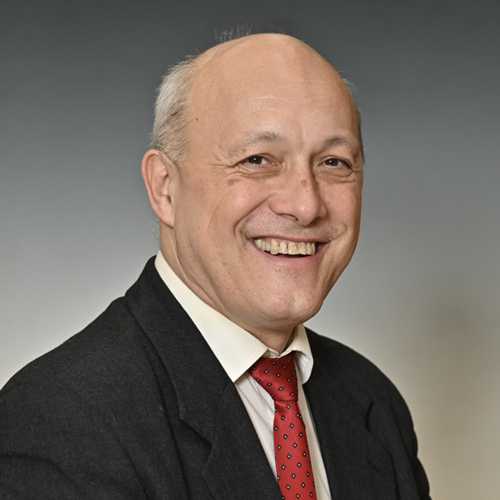 Dr Vladimir Trajkovski is a Full Professor at the Institute of Special Education and Rehabilitation, Faculty of Philosophy, University “Ss. Cyril and Methodius” in Skopje, Macedonia. Since 2022, he has served as Founder and Editor-in-Chief of the Journal of Health and Rehabilitation Sciences, published by Alma Mater Europaea University in Slovenia. He previously led two other international open-access journals and now serves as Faculty Coordinator for Indexing Journals and Academic Publishing. In addition, he is General Secretary of the Macedonian Association of Medical Editors, a member of the European Academy of Sciences and Arts, and of the European Association of Science Editors. Since 2025, he has been a Board Member of the Center for Open Science at Ss. Cyril and Methodius University and a member of the World Association of Medical Editors.
Dr Vladimir Trajkovski is a Full Professor at the Institute of Special Education and Rehabilitation, Faculty of Philosophy, University “Ss. Cyril and Methodius” in Skopje, Macedonia. Since 2022, he has served as Founder and Editor-in-Chief of the Journal of Health and Rehabilitation Sciences, published by Alma Mater Europaea University in Slovenia. He previously led two other international open-access journals and now serves as Faculty Coordinator for Indexing Journals and Academic Publishing. In addition, he is General Secretary of the Macedonian Association of Medical Editors, a member of the European Academy of Sciences and Arts, and of the European Association of Science Editors. Since 2025, he has been a Board Member of the Center for Open Science at Ss. Cyril and Methodius University and a member of the World Association of Medical Editors. -
Anna Bernaczyk
Project Support Centre, Adam Mickiewicz University, Poznań, Poland
 Anna Bernaczyk works as a Research Support Officer and Data Steward (SSH) at the Project Support Centre of Adam Mickiewicz University in Poznań, Poland. Her main focus in Open Science is providing consultations and advice to researchers on developing Data Management Plans (DMPs) for their projects. She collaborates closely with the University Library and other AMU divisions on issues related to publishing research results and sharing research data.
Anna Bernaczyk works as a Research Support Officer and Data Steward (SSH) at the Project Support Centre of Adam Mickiewicz University in Poznań, Poland. Her main focus in Open Science is providing consultations and advice to researchers on developing Data Management Plans (DMPs) for their projects. She collaborates closely with the University Library and other AMU divisions on issues related to publishing research results and sharing research data. -
Alice Orru
CNR-ILIESI (Institute for the European Intellectual Lexicon and History of Ideas), Rome, Italy
email
 Alice Orru is a Senior Research Fellow at CNR-ILIESI in Rome and a member of the OPERAS-IT and H2IOSC projects, as well as the Open Science Research Team for the Social Sciences and Humanities. Her work focuses on investigating strategies and best practices from exemplary open publishing initiatives in Italy. She holds a degree in Philosophy (2018) and a PhD in Documentation Studies, Linguistics, and Literature (2024) from Sapienza University of Rome. Her broader research interests include the history of philosophy and linguistic thought, cultural diversity, semantics, lexicology, and lexicography.
Alice Orru is a Senior Research Fellow at CNR-ILIESI in Rome and a member of the OPERAS-IT and H2IOSC projects, as well as the Open Science Research Team for the Social Sciences and Humanities. Her work focuses on investigating strategies and best practices from exemplary open publishing initiatives in Italy. She holds a degree in Philosophy (2018) and a PhD in Documentation Studies, Linguistics, and Literature (2024) from Sapienza University of Rome. Her broader research interests include the history of philosophy and linguistic thought, cultural diversity, semantics, lexicology, and lexicography.
Data stewardship and Open Science in Earth and Environmental Sciences
-
Federica Tanlongo
EPOS ERIC
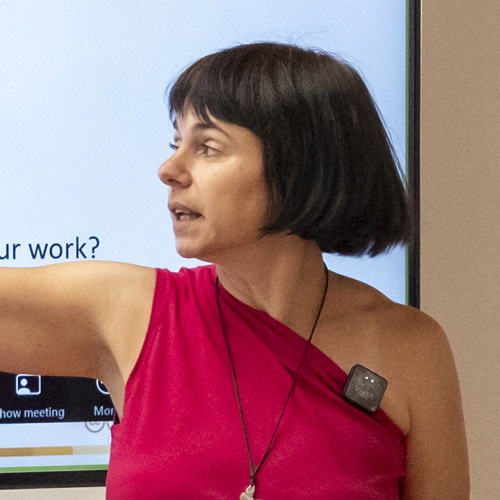 Federica Tanlongo is Chief of Communication at EPOS ERIC in Rome, Italy. In this capacity, she is responsible for strategic communication, training, dissemination and community engagement for the wider EPOS Research Infrastructure.
Federica holds a degree in Philosophy of Science and a second-level ICT Master’s in Management and Design for Multimedia Communication at Sapienza University. Before joining EPOS, she coordinated the Communication Unit of GARR, the Italian National Research and Education Network (NREN) for nearly 20 years. Since its launch in 2018, she has contributed to the establishment of ICDI, Italy's national initiative for coordinating national research infrastructures towards Open Science. She contributed to various Open Science and EOSC-related working groups and projects. An expert in traditional, web, and multimedia communication, training and technical-scientific dissemination, she has been involved in numerous international projects. She was one of the ideators of Skills4EOSC since its design stages, and she strived to create an RDM, FAIR and open science curriculum specific to the Solid Earth Science community, also launching an international summer school dedicated to this very subject.
Federica Tanlongo is Chief of Communication at EPOS ERIC in Rome, Italy. In this capacity, she is responsible for strategic communication, training, dissemination and community engagement for the wider EPOS Research Infrastructure.
Federica holds a degree in Philosophy of Science and a second-level ICT Master’s in Management and Design for Multimedia Communication at Sapienza University. Before joining EPOS, she coordinated the Communication Unit of GARR, the Italian National Research and Education Network (NREN) for nearly 20 years. Since its launch in 2018, she has contributed to the establishment of ICDI, Italy's national initiative for coordinating national research infrastructures towards Open Science. She contributed to various Open Science and EOSC-related working groups and projects. An expert in traditional, web, and multimedia communication, training and technical-scientific dissemination, she has been involved in numerous international projects. She was one of the ideators of Skills4EOSC since its design stages, and she strived to create an RDM, FAIR and open science curriculum specific to the Solid Earth Science community, also launching an international summer school dedicated to this very subject. -
Henning Lorenz
Uppsala University, Sweden
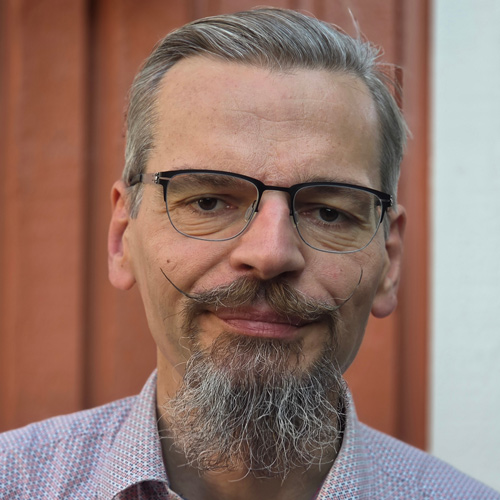 Henning Lorenz is located at Uppsala University, Sweden, and is a geologist by training. He spent more than a decade on research in the high Arctic, where the scarcity and value of samples and data spurred his engagement in open science. The latter became the core of his work as a science manager for international scientific drilling projects. Henning is a member of the EPOS Thematic Core Service, Geological Information and Modelling. He is engaged in both, bringing the data to EPOS through data service development and facilitating the use of EPOS through outreach and education.
Henning Lorenz is located at Uppsala University, Sweden, and is a geologist by training. He spent more than a decade on research in the high Arctic, where the scarcity and value of samples and data spurred his engagement in open science. The latter became the core of his work as a science manager for international scientific drilling projects. Henning is a member of the EPOS Thematic Core Service, Geological Information and Modelling. He is engaged in both, bringing the data to EPOS through data service development and facilitating the use of EPOS through outreach and education. -
Heriniaina 'Juliano' Dani Ramanantsoa
University of Bergen, Norway
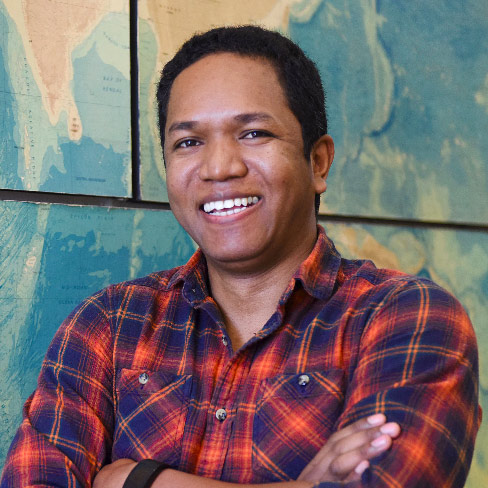 Heriniaina 'Juliano' Dani Ramanantsoa is a climate scientist with a PhD in Physical Oceanography and Atmospheric Science, and is currently a full-time researcher at the University of Bergen, Norway. He has extensive experience in data processing, numerical modelling, and project management. Juliano applies over a decade of expertise to investigating the dynamic interplay among the ocean, atmosphere, solid Earth, and ecosystems by leveraging diverse data sources, including multimodal and textual data.
He is primarily involved in the Geo-INQUIRE and EPOS projects, where he applies artificial intelligence (AI) and large language models (LLMs) to advance research data management in geoscience.
Heriniaina 'Juliano' Dani Ramanantsoa is a climate scientist with a PhD in Physical Oceanography and Atmospheric Science, and is currently a full-time researcher at the University of Bergen, Norway. He has extensive experience in data processing, numerical modelling, and project management. Juliano applies over a decade of expertise to investigating the dynamic interplay among the ocean, atmosphere, solid Earth, and ecosystems by leveraging diverse data sources, including multimodal and textual data.
He is primarily involved in the Geo-INQUIRE and EPOS projects, where he applies artificial intelligence (AI) and large language models (LLMs) to advance research data management in geoscience.
-
Jan Michálek
Czech Academy of Sciences, Institute of Geophysics
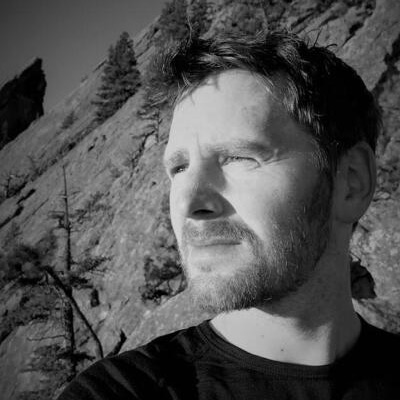 Jan Michálek, PhD., is a seismologist with a strong background in seismic data analysis, network operations, and the integration of geoscientific data into advanced e-infrastructures. He holds a Master's degree in Applied Geophysics and a PhD in Seismology from Charles University in Prague.
Jan Michálek, PhD., is a seismologist with a strong background in seismic data analysis, network operations, and the integration of geoscientific data into advanced e-infrastructures. He holds a Master's degree in Applied Geophysics and a PhD in Seismology from Charles University in Prague.
Jan's research has focused on the source parameters of micro-earthquakes and the monitoring of seismic swarm-like activity, including his work with the WEBNET group in Czechia, the deployment of seismic stations on the Reykjanes peninsula in Iceland and analysing data from Nordland, northern Norway. Of relevance to building training materials, Jan has been a pivotal contributor to the European Plate Observing System (EPOS) infrastructure and ensuring communication and integration across various geoscientific communities. He has been responsible for providing training and coordinating activities within several EPOS-related projects, including the Skills4EOSC project. -
Olaya Dorado
EPOS-ES at GEO3BCN-CSIC
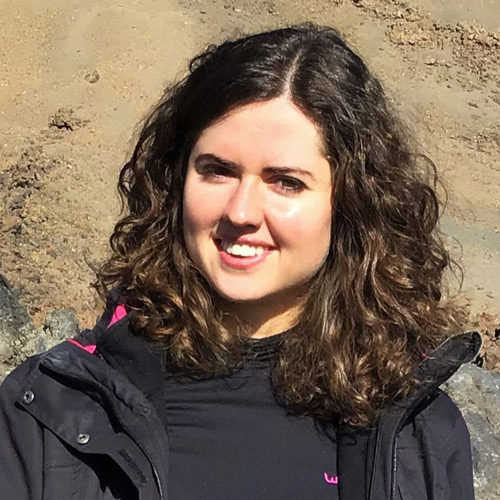 Olaya Dorado is a geologist specialised in volcanology, petrology and geochemical data analysis, with a strong interest in open science and research data management. She completed her PhD at GEO3BCN-CSIC and the University of Barcelona, where she investigated the pre-eruptive and eruptive dynamics of the Teide-Pico Viejo volcanic complex. She has been involved in the EPOS Community as the Project Manager of the EPOS Spanish node, where she actively promotes FAIR data practices and interdisciplinary collaboration. Olaya also contributes to science communication through public outreach and social media, and supports training activities related to geoscientific data and digital infrastructures.
Olaya Dorado is a geologist specialised in volcanology, petrology and geochemical data analysis, with a strong interest in open science and research data management. She completed her PhD at GEO3BCN-CSIC and the University of Barcelona, where she investigated the pre-eruptive and eruptive dynamics of the Teide-Pico Viejo volcanic complex. She has been involved in the EPOS Community as the Project Manager of the EPOS Spanish node, where she actively promotes FAIR data practices and interdisciplinary collaboration. Olaya also contributes to science communication through public outreach and social media, and supports training activities related to geoscientific data and digital infrastructures. -
Harald Nedrebø
University of Bergen, Norway
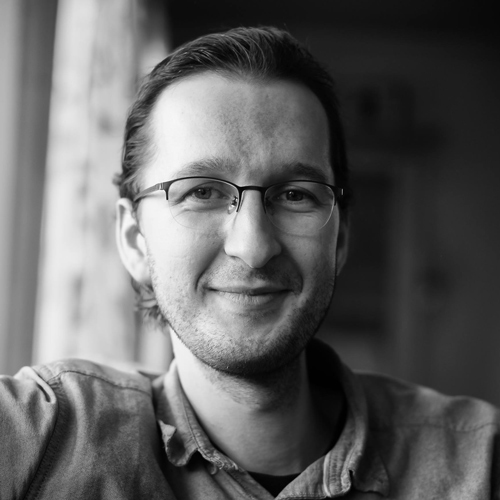 Harald Nedrebø is a geologist currently working for the University of Bergen, Norway. He currently works as a technical administrator in EPOS, producing training material and technical bug fixing, but is also involved in other European science infrastructure projects like Skills4EOSC and GeoINQUIRE
Harald Nedrebø is a geologist currently working for the University of Bergen, Norway. He currently works as a technical administrator in EPOS, producing training material and technical bug fixing, but is also involved in other European science infrastructure projects like Skills4EOSC and GeoINQUIRE
Open Science for Early Career Researchers in Climate Change
-
Sandro Fiore
Department of Information Engineering and Computer Science (DISI), University of Trento, Italy
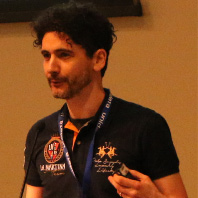 Sandro Fiore, PhD, is an Associate Professor at the Department of Information Engineering and Computer Science (DISI) of the University of Trento, where he leads the High Performance Climate Informatics Laboratory and lectures at the School of Innovation. His research focuses on scientific data management, computational sustainability and GreenOps, as well as workflows and provenance for climate change studies in extreme-scale HPC, distributed, and cloud environments. He served as a Trainer for the Skills4EOSC Training Course on Open Science and Research Data Management in Climate Change.
Sandro Fiore, PhD, is an Associate Professor at the Department of Information Engineering and Computer Science (DISI) of the University of Trento, where he leads the High Performance Climate Informatics Laboratory and lectures at the School of Innovation. His research focuses on scientific data management, computational sustainability and GreenOps, as well as workflows and provenance for climate change studies in extreme-scale HPC, distributed, and cloud environments. He served as a Trainer for the Skills4EOSC Training Course on Open Science and Research Data Management in Climate Change. -
Paula Martínez Lavanchy
TU Delft Library, Netherlands
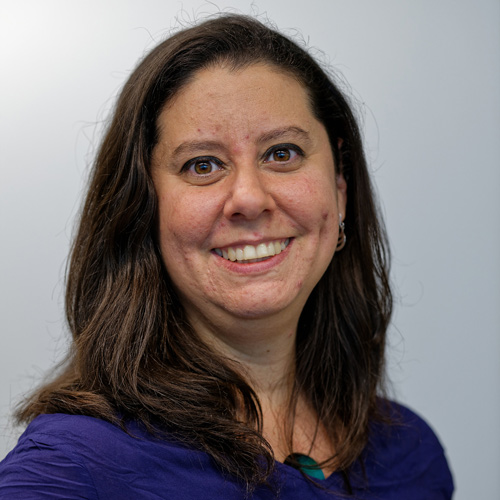 Paula Martínez Lavanchy, PhD, is the Research Data and Software (RDS) Training Coordinator at TU Delft Library. She is responsible for implementing the RDS training vision and programme for TU Delft researchers as part of the Library’s Open Science mission and TU Delft’s Digital Strategy. She contributed to the design of the curriculum, learning activities, and materials for the Skills4EOSC Training Course on Open Science and Research Data Management in Climate Change.
Paula Martínez Lavanchy, PhD, is the Research Data and Software (RDS) Training Coordinator at TU Delft Library. She is responsible for implementing the RDS training vision and programme for TU Delft researchers as part of the Library’s Open Science mission and TU Delft’s Digital Strategy. She contributed to the design of the curriculum, learning activities, and materials for the Skills4EOSC Training Course on Open Science and Research Data Management in Climate Change. -
Saba Sharma
TU Delft Library, Netherlands
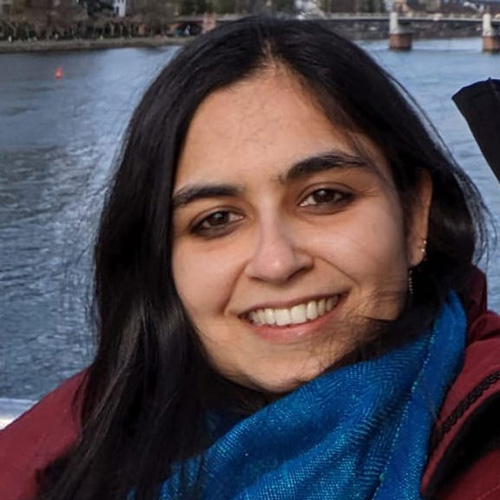 Saba Sharma is the Training Coordinator for Skills4EOSC at TU Delft Library, where she works on Open Science training and curriculum development, as well as code reproducibility projects. She contributed to the design of the learning materials and served as a Trainer for the Skills4EOSC Training Course on Open Science and Research Data Management in Climate Change.
Saba Sharma is the Training Coordinator for Skills4EOSC at TU Delft Library, where she works on Open Science training and curriculum development, as well as code reproducibility projects. She contributed to the design of the learning materials and served as a Trainer for the Skills4EOSC Training Course on Open Science and Research Data Management in Climate Change. -
Fabrizio Antonio
Advanced Digital Innovation Center (ADIC), Euro-Mediterranean Center on Climate Change (CMCC), Italy
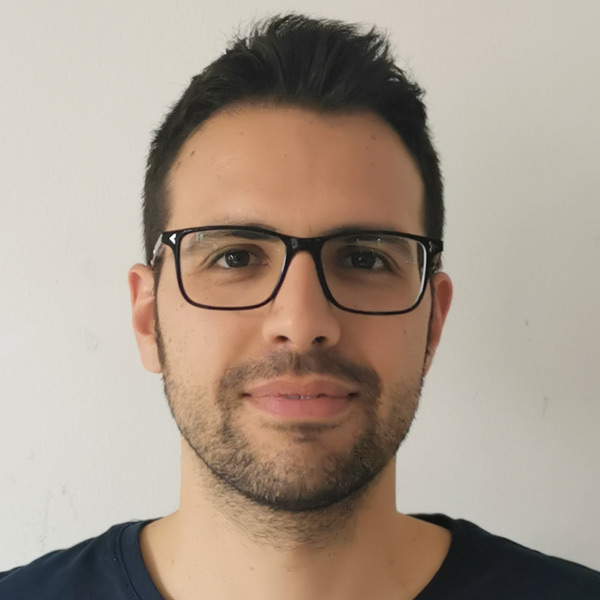 Fabrizio Antonio is a Computer Scientist at the Advanced Digital Innovation Center (ADIC) of the Euro-Mediterranean Center on Climate Change (CMCC). His research focuses on the design and development of advanced computing architectures and software solutions for scientific data management, data analytics, and data provenance in distributed and cloud environments. He served as a Trainer for the Skills4EOSC Training Course on Open Science and Research Data Management in Climate Change.
Fabrizio Antonio is a Computer Scientist at the Advanced Digital Innovation Center (ADIC) of the Euro-Mediterranean Center on Climate Change (CMCC). His research focuses on the design and development of advanced computing architectures and software solutions for scientific data management, data analytics, and data provenance in distributed and cloud environments. He served as a Trainer for the Skills4EOSC Training Course on Open Science and Research Data Management in Climate Change. -
Teuno Hooijer
Koninklijk Nederlands Meteorologisch Instituut (KNMI), Netherlands
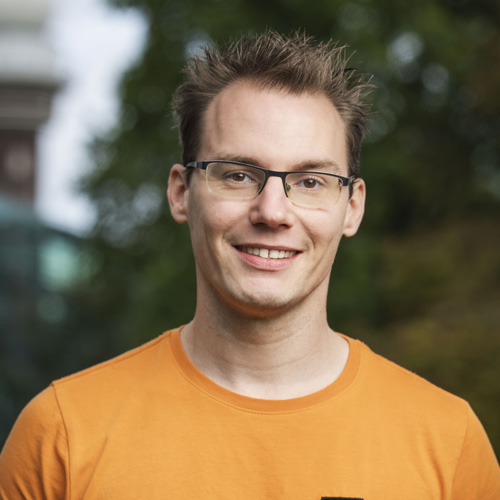 Teuno Hooijer is a DevOps Engineer on the Climate Team and the Virtual Research Environment (VRE) at KNMI. His work focuses on maintaining and expanding the capabilities and usage of the VRE, as well as developing and maintaining applications for climatological observation data. He is also involved in making second- and third-party observation data available for researchers. He served as an External Trainer for the Skills4EOSC Training Course on Open Science and Research Data Management in Climate Change.
Teuno Hooijer is a DevOps Engineer on the Climate Team and the Virtual Research Environment (VRE) at KNMI. His work focuses on maintaining and expanding the capabilities and usage of the VRE, as well as developing and maintaining applications for climatological observation data. He is also involved in making second- and third-party observation data available for researchers. He served as an External Trainer for the Skills4EOSC Training Course on Open Science and Research Data Management in Climate Change. -
Christian Pagé
Centre Européen de Recherche et de Formation Avancée en Calcul Scientifique (CERFACS), France
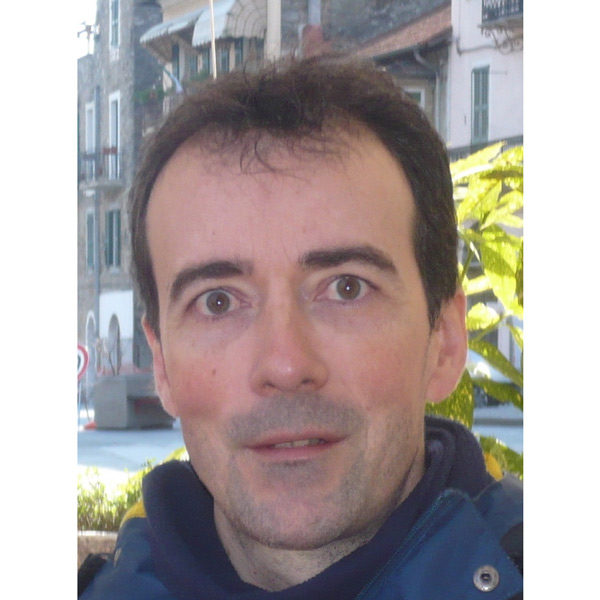 Christian Pagé, PhD, is a Research Engineer (Expert Level) at CERFACS, where he develops and designs tools and interfaces to improve access to and processing of climate modelling simulations, particularly for the climate change impact research community. His interests also include leveraging artificial intelligence methods to enhance data analytics. He served as an External Trainer for the Skills4EOSC Training Course on Open Science and Research Data Management in Climate Change.
Christian Pagé, PhD, is a Research Engineer (Expert Level) at CERFACS, where he develops and designs tools and interfaces to improve access to and processing of climate modelling simulations, particularly for the climate change impact research community. His interests also include leveraging artificial intelligence methods to enhance data analytics. He served as an External Trainer for the Skills4EOSC Training Course on Open Science and Research Data Management in Climate Change. -
Matteo Zanotto
Department of Information Engineering and Computer Science (DISI), University of Trento, Italy
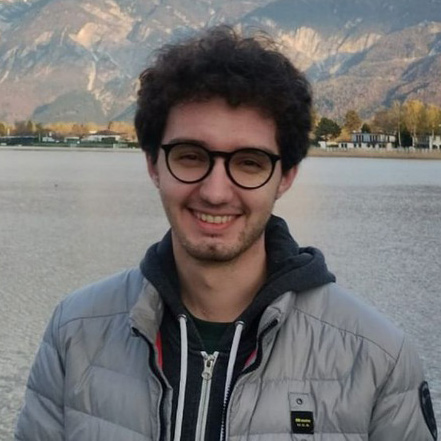 Matteo Zanotto is a Ph.D. student in Computer Science at the University of Trento. His research focuses on sustainability and accountability aspects in cloud computing environments.
Matteo Zanotto is a Ph.D. student in Computer Science at the University of Trento. His research focuses on sustainability and accountability aspects in cloud computing environments. -
Simone Norberti
Advanced Digital Innovation Center (ADIC), Euro-Mediterranean Center on Climate Change (CMCC), Italy
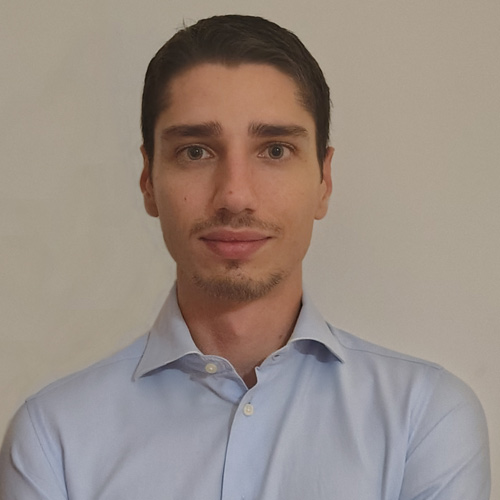 Simone Norberti holds an M.Sc. in Computer Engineering with a specialisation in Artificial Intelligence from the University of Salento. Since September 2024, he has been a Junior Research Associate at the Advanced Digital Innovation Centre (ADIC) of the CMCC, where he designs and develops machine learning models for weather and climate applications.
Simone Norberti holds an M.Sc. in Computer Engineering with a specialisation in Artificial Intelligence from the University of Salento. Since September 2024, he has been a Junior Research Associate at the Advanced Digital Innovation Centre (ADIC) of the CMCC, where he designs and develops machine learning models for weather and climate applications. -
Oussema Jerfel
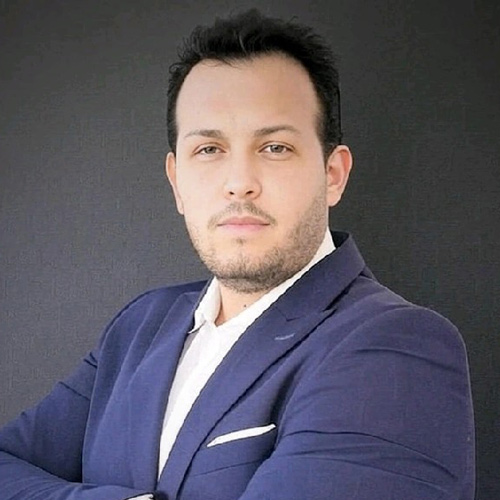 Oussema Jerfel is a Software Engineer with expertise in backend and data engineering, specializing in scientific data infrastructures, APIs, and microservices. He has contributed to projects on climate data management and interoperability, including STAC and ESGF, and has expertise in Python, Java, and cloud-native solutions. His work focuses on building scalable tools to support Open Science and research data management.
Oussema Jerfel is a Software Engineer with expertise in backend and data engineering, specializing in scientific data infrastructures, APIs, and microservices. He has contributed to projects on climate data management and interoperability, including STAC and ESGF, and has expertise in Python, Java, and cloud-native solutions. His work focuses on building scalable tools to support Open Science and research data management. -
Mauro Paschetta
Politecnico di Torino, Italy
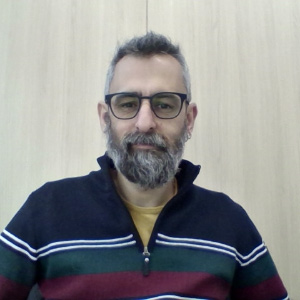 Mauro Paschetta, Ph.D. in Evolutionary Biology and Biodiversity, is an Open Science Domain Expert at the Politecnico di Torino. He supports researchers in managing their data, drafting DMPs, writing project proposals, and teaches Open Science practices and research data management to PhD students. He has attended several courses on Open Science, RDM, FAIR principles, and data stewardship, and is involved in various international and national projects promoting Open Science.
Mauro Paschetta, Ph.D. in Evolutionary Biology and Biodiversity, is an Open Science Domain Expert at the Politecnico di Torino. He supports researchers in managing their data, drafting DMPs, writing project proposals, and teaches Open Science practices and research data management to PhD students. He has attended several courses on Open Science, RDM, FAIR principles, and data stewardship, and is involved in various international and national projects promoting Open Science. -
Hafiz Muhammad Yousaf
High Performance Climate Informatics Laboratory (HPCI Lab), University of Trento, Italy
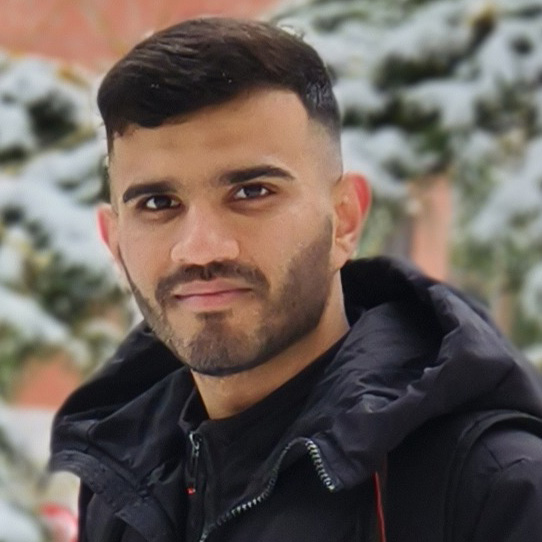 Hafiz Muhammad Yousaf is a Research Fellow at the University of Trento, working in the High Performance Climate Informatics Laboratory (HPCI Lab). His research focuses on data provenance in software engineering and machine learning workflows, with applications in climate science and AI reproducibility. He has contributed to the interTwin and RI-Scale projects, developing open-source tools such as yProv4SQA for provenance tracking and workflow transparency. He participated in the Skills4EOSC Training Course on Open Science and Research Data Management in Climate Change.
Hafiz Muhammad Yousaf is a Research Fellow at the University of Trento, working in the High Performance Climate Informatics Laboratory (HPCI Lab). His research focuses on data provenance in software engineering and machine learning workflows, with applications in climate science and AI reproducibility. He has contributed to the interTwin and RI-Scale projects, developing open-source tools such as yProv4SQA for provenance tracking and workflow transparency. He participated in the Skills4EOSC Training Course on Open Science and Research Data Management in Climate Change. -
Azgar Shuvo
Department of Information Engineering and Computer Science (DISI), University of Trento, Italy
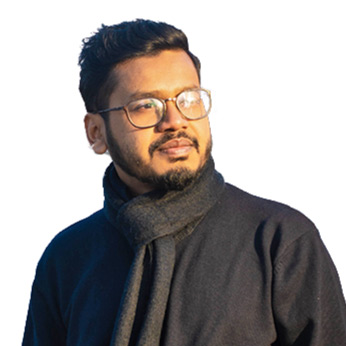 Azgar Shuvo, M.Sc., is a Research Fellow at the University of Trento, contributing to the High Performance Climate Informatics Laboratory (HPCI Lab). His research focuses on research data management, big data analysis, provenance in large-scale HPC, and machine learning. He participated in the Skills4EOSC Training Course on Open Science and Research Data Management in Climate Change.
Azgar Shuvo, M.Sc., is a Research Fellow at the University of Trento, contributing to the High Performance Climate Informatics Laboratory (HPCI Lab). His research focuses on research data management, big data analysis, provenance in large-scale HPC, and machine learning. He participated in the Skills4EOSC Training Course on Open Science and Research Data Management in Climate Change. -
Marco De Carlo
Advanced Digital Innovation Center (ADIC), Euro-Mediterranean Center on Climate Change (CMCC), Italy
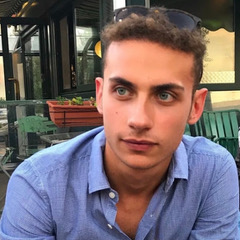 Marco De Carlo is a Post-Degree Researcher and member of the Machine Learning Research Group at the Advanced Digital Innovation Centre (ADIC) of the CMCC. His research focuses on coupled models integrating machine learning with numerical models, as well as fully data-driven approaches to improve the monitoring, prediction, and analysis of climate-related phenomena. He also contributes to cross-institutional projects applying machine learning and advanced computational methods to tackle environmental and climate challenges.
Marco De Carlo is a Post-Degree Researcher and member of the Machine Learning Research Group at the Advanced Digital Innovation Centre (ADIC) of the CMCC. His research focuses on coupled models integrating machine learning with numerical models, as well as fully data-driven approaches to improve the monitoring, prediction, and analysis of climate-related phenomena. He also contributes to cross-institutional projects applying machine learning and advanced computational methods to tackle environmental and climate challenges. -
Sifeddine Benflis
University of Batna 2, Algeria
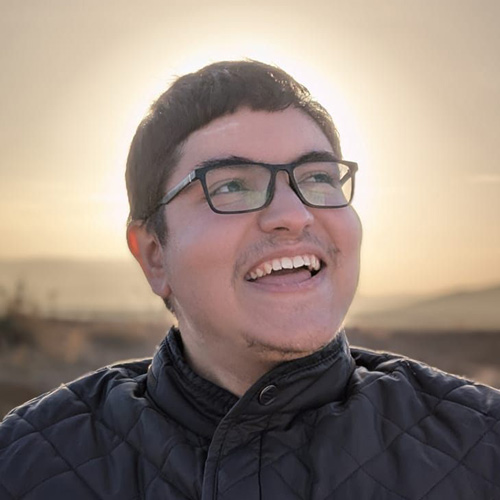 Sifeddine Benflis, PhD student at the University of Batna 2, holds a background in Networks and Distributed Systems and is currently pursuing research in Information Systems. His PhD focuses on Virtual Machine placement in cloud environments, aiming to optimise energy consumption and resource utilisation.
Sifeddine Benflis, PhD student at the University of Batna 2, holds a background in Networks and Distributed Systems and is currently pursuing research in Information Systems. His PhD focuses on Virtual Machine placement in cloud environments, aiming to optimise energy consumption and resource utilisation.
FAIR data and Open Science for cultural heritage and digital collections
-
Gustavo Candela
University of Alicante
https://orcid.org/0000-0001-6122-0777
This email address is being protected from spambots. You need JavaScript enabled to view it. 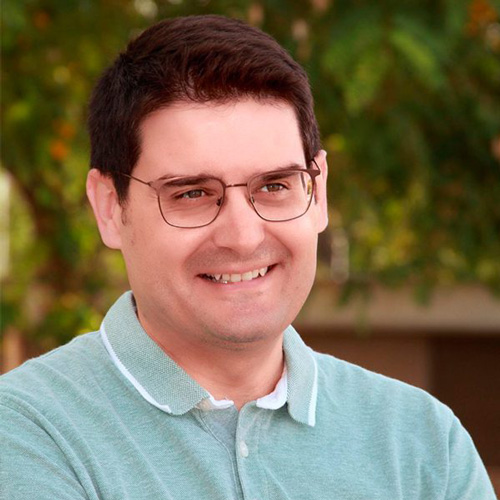 Gustavo Candela is a Lecturer in Computer Science at the University of Alicante, where he received his PhD in Computer Science. Until 2023, he was a member of the IT department at the Biblioteca Virtual Miguel de Cervantes. His main research interests include Information Retrieval, Semantic Web, and Collections as Data. He has worked with and published on the integration and quality of Linked Open Data in libraries, as well as Collections as Data and Jupyter Notebooks using datasets provided by several GLAM institutions. He is involved in the International GLAM Labs Community and has closely collaborated with institutions and initiatives such as the National Library of Scotland, Europeana, LIBER, British Library, Columbia University, Poznan Supercomputing and Networking Center, and DARIAH-EU.
Gustavo Candela is a Lecturer in Computer Science at the University of Alicante, where he received his PhD in Computer Science. Until 2023, he was a member of the IT department at the Biblioteca Virtual Miguel de Cervantes. His main research interests include Information Retrieval, Semantic Web, and Collections as Data. He has worked with and published on the integration and quality of Linked Open Data in libraries, as well as Collections as Data and Jupyter Notebooks using datasets provided by several GLAM institutions. He is involved in the International GLAM Labs Community and has closely collaborated with institutions and initiatives such as the National Library of Scotland, Europeana, LIBER, British Library, Columbia University, Poznan Supercomputing and Networking Center, and DARIAH-EU. -
Valentina Colcelli
National Research Council (Consiglio Nazionale delle Ricerche, CNR)
https://orcid.org/0000-0001-5488-2991
This email address is being protected from spambots. You need JavaScript enabled to view it. 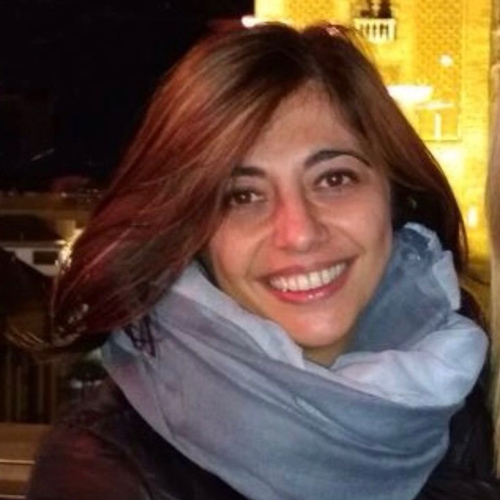 Valentina Colcelli (PhD) is a Senior Researcher at the Italian National Research Council (CNR). Her main research interests focus on the interaction between domestic and European law in shaping rights, interests, and market regulation. She is also engaged in research on personal and non-personal data, data circulation, data protection, AI ethics, and biodiversity-related rights. She has authored books on EU integration and over 80 scientific papers. Valentina participates in several Horizon Europe projects and serves as co-chair of the “Regulatory, Ethics, and GDPR” Working Group of the European, Middle East & African Society for Biopreservation and Biobanking (ESBB). She is also a member of the ESBB Council, an external examiner at the University of Malta, and an ethics advisor in several EU-funded projects, including EUCAIM, FLUTE, OPADE, and PREDICTFTD.
Valentina Colcelli (PhD) is a Senior Researcher at the Italian National Research Council (CNR). Her main research interests focus on the interaction between domestic and European law in shaping rights, interests, and market regulation. She is also engaged in research on personal and non-personal data, data circulation, data protection, AI ethics, and biodiversity-related rights. She has authored books on EU integration and over 80 scientific papers. Valentina participates in several Horizon Europe projects and serves as co-chair of the “Regulatory, Ethics, and GDPR” Working Group of the European, Middle East & African Society for Biopreservation and Biobanking (ESBB). She is also a member of the ESBB Council, an external examiner at the University of Malta, and an ethics advisor in several EU-funded projects, including EUCAIM, FLUTE, OPADE, and PREDICTFTD. -
Verónica Díez Díaz
Museum für Naturkunde Berlin – Leibniz Institute for Evolution and Biodiversity Science (Germany)
https://orcid.org/0000-0002-9840-9829
This email address is being protected from spambots. You need JavaScript enabled to view it. 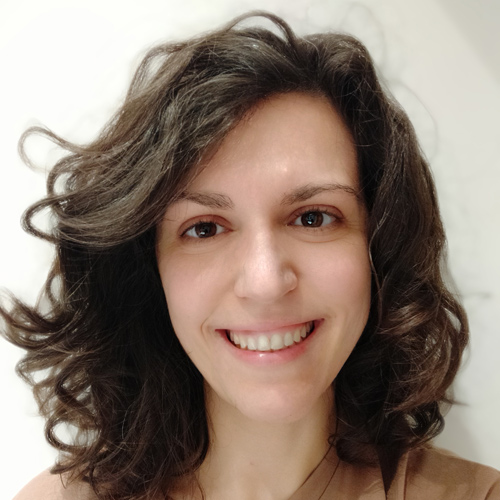 Verónica Díez Díaz earned her degree in Biology at the Universidad Autónoma de Madrid and completed her PhD in Geology at the Universidad del País Vasco/Euskal Herriko Unibertsitatea in Bilbao (Spain). She specializes in dinosaur palaeontology, focusing on Late Cretaceous titanosaur sauropods from southwestern Europe. Since 2015, she has been based at the Museum für Naturkunde in Berlin, where she leads pioneering research on sauropod tail biomechanics. This work inspired her deep engagement with 3D digitisation of palaeontological collections, making her a recognized authority in the field. In 2018, she received the Digital Female Leader Award in Science, and since 2021 she has served as Ethics Officer of the European Association of Vertebrate Palaeontologists (EAVP).
Verónica Díez Díaz earned her degree in Biology at the Universidad Autónoma de Madrid and completed her PhD in Geology at the Universidad del País Vasco/Euskal Herriko Unibertsitatea in Bilbao (Spain). She specializes in dinosaur palaeontology, focusing on Late Cretaceous titanosaur sauropods from southwestern Europe. Since 2015, she has been based at the Museum für Naturkunde in Berlin, where she leads pioneering research on sauropod tail biomechanics. This work inspired her deep engagement with 3D digitisation of palaeontological collections, making her a recognized authority in the field. In 2018, she received the Digital Female Leader Award in Science, and since 2021 she has served as Ethics Officer of the European Association of Vertebrate Palaeontologists (EAVP). -
Julia Giora
Plazi
https://orcid.org/0000-0001-8501-2374
This email address is being protected from spambots. You need JavaScript enabled to view it. 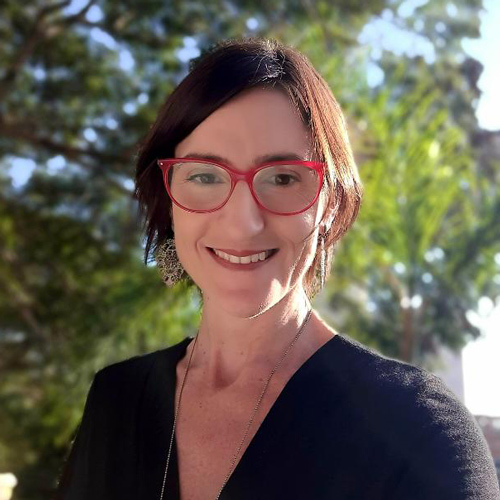 Julia Giora is a Brazilian biologist with PhD and postdoctoral training in Animal Biology, with over 20 years of experience in research, higher education, and biodiversity data. She currently leads the Learning & Engagement team at Plazi, working internationally with FAIR scientific data and training. She also develops educational content for universities and Brazilian NGOs focused on biodiversity conservation. Julia is the author of more than 20 scientific publications, including peer-reviewed articles, books, and book chapters.
Julia Giora is a Brazilian biologist with PhD and postdoctoral training in Animal Biology, with over 20 years of experience in research, higher education, and biodiversity data. She currently leads the Learning & Engagement team at Plazi, working internationally with FAIR scientific data and training. She also develops educational content for universities and Brazilian NGOs focused on biodiversity conservation. Julia is the author of more than 20 scientific publications, including peer-reviewed articles, books, and book chapters. -
Helmut W. Klug
University of Graz
https://orcid.org/0000-0002-7461-5820
This email address is being protected from spambots. You need JavaScript enabled to view it. 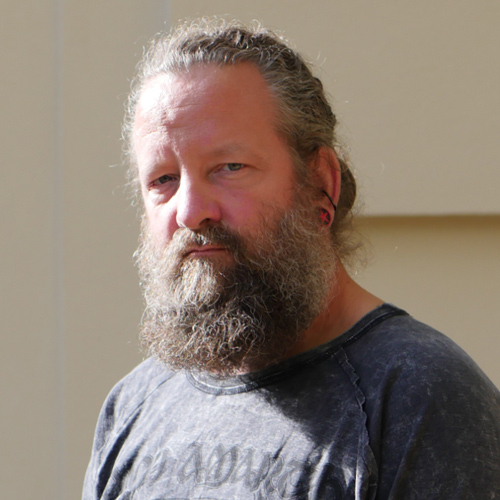 Helmut W. Klug’s academic background combines German studies, medieval studies, and digital humanities, with a focus on editing historical texts and building digital scholarly resources. His research intersects with culinary history and historical botany. He has worked at the University of Graz since 2005 and currently supports research data management and Open Science at the university’s library.
Helmut W. Klug’s academic background combines German studies, medieval studies, and digital humanities, with a focus on editing historical texts and building digital scholarly resources. His research intersects with culinary history and historical botany. He has worked at the University of Graz since 2005 and currently supports research data management and Open Science at the university’s library. -
Teodora Konach
European Association of Research Managers and Administrators (EARMA)
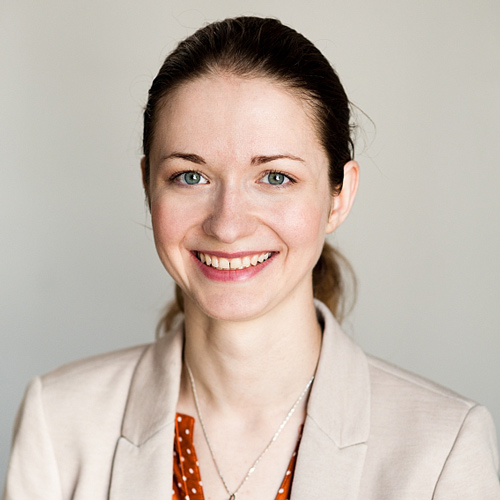 Teodora Konach is Head of Professional Development at EARMA (European Association of Research Managers and Administrators), leading initiatives in professional development, recognition, and EU-funded programmes. With a background in legal and cultural studies, she has worked since 2019 as an external expert and evaluator for the European Commission and the Council of Europe. Teodora has contributed to several EU projects on research ethics, integrity, open science, and training (e.g., SOPs4RI, ROSiE, IRECS, RE4GREEN, PATTERN). She currently co-leads the EARMA-coordinated RM Roadmap and RM Framework projects, promoting a community-driven approach to professionalising research management in Europe.
Teodora Konach is Head of Professional Development at EARMA (European Association of Research Managers and Administrators), leading initiatives in professional development, recognition, and EU-funded programmes. With a background in legal and cultural studies, she has worked since 2019 as an external expert and evaluator for the European Commission and the Council of Europe. Teodora has contributed to several EU projects on research ethics, integrity, open science, and training (e.g., SOPs4RI, ROSiE, IRECS, RE4GREEN, PATTERN). She currently co-leads the EARMA-coordinated RM Roadmap and RM Framework projects, promoting a community-driven approach to professionalising research management in Europe. -
Julian Palacz
Natural History Museum Vienna (NHMW)
This email address is being protected from spambots. You need JavaScript enabled to view it. 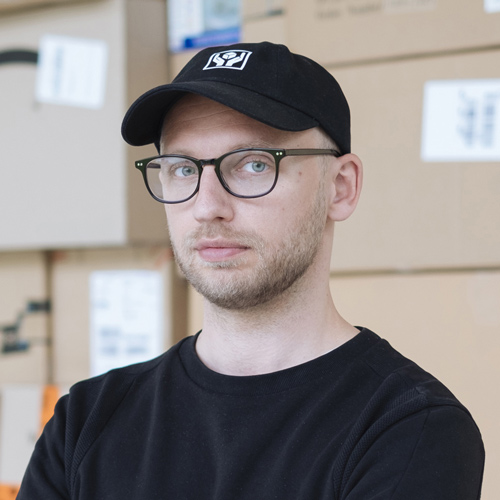 Julian Palacz coordinates the technical development of the Kulturpool at the Natural History Museum Vienna. He specialises in metadata harmonization for cultural heritage assets and in open technologies such as IIIF, RDF, and API-supported data infrastructures. He also teaches media technology at the University of Applied Arts Vienna, focusing on artistic engagement with raw data, data analysis, and visualisation.
Julian Palacz coordinates the technical development of the Kulturpool at the Natural History Museum Vienna. He specialises in metadata harmonization for cultural heritage assets and in open technologies such as IIIF, RDF, and API-supported data infrastructures. He also teaches media technology at the University of Applied Arts Vienna, focusing on artistic engagement with raw data, data analysis, and visualisation. -
Heimo Rainer
Natural History Museum Vienna
https://orcid.org/0000-0002-5963-349X
This email address is being protected from spambots. You need JavaScript enabled to view it. 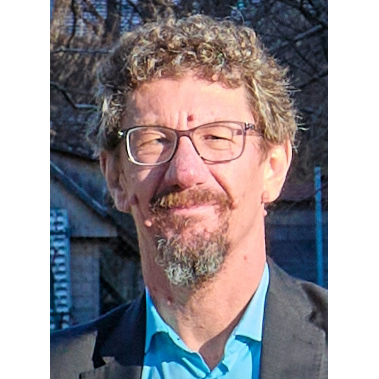 Heimo Rainer is Head of the Botany Department at the Natural History Museum Vienna and coordinator of the virtual herbarium and botany collections management platform JACQ. He has participated in numerous European projects (e.g., SYNTHESYS2–3, SYNTHESYS+) and serves as the National Node representative of DiSSCo in Austria. He coordinates the Open Scientific Collections Austria (OSCA) and the Digitisation Working Group of CETAF. His research includes extensive fieldwork across tropical regions of South and Central America and the Antilles.
Heimo Rainer is Head of the Botany Department at the Natural History Museum Vienna and coordinator of the virtual herbarium and botany collections management platform JACQ. He has participated in numerous European projects (e.g., SYNTHESYS2–3, SYNTHESYS+) and serves as the National Node representative of DiSSCo in Austria. He coordinates the Open Scientific Collections Austria (OSCA) and the Digitisation Working Group of CETAF. His research includes extensive fieldwork across tropical regions of South and Central America and the Antilles. -
Elena Ritschard
until July 2025 – Natural History Museum Vienna (NHMW
https://orcid.org/0000-0002-4956-9703
This email address is being protected from spambots. You need JavaScript enabled to view it.  Elena Ritschard holds a PhD in Biology from the University of Vienna, where she researched the evolution of cephalopod genomes. She has worked at the Natural History Museum Vienna as a science communicator and project associate in Open Science initiatives. As part of the Skills4EOSC team, she contributed to designing and delivering Open Science courses tailored to the needs of research infrastructures holding scientific collections. She also worked on promoting professional networks of scientific collection curators and data stewards, and on stakeholder engagement with policy- and decision-makers in Austria.
Elena Ritschard holds a PhD in Biology from the University of Vienna, where she researched the evolution of cephalopod genomes. She has worked at the Natural History Museum Vienna as a science communicator and project associate in Open Science initiatives. As part of the Skills4EOSC team, she contributed to designing and delivering Open Science courses tailored to the needs of research infrastructures holding scientific collections. She also worked on promoting professional networks of scientific collection curators and data stewards, and on stakeholder engagement with policy- and decision-makers in Austria. -
Andreas Salmhofer
Mauthausen Memorial
This email address is being protected from spambots. You need JavaScript enabled to view it. 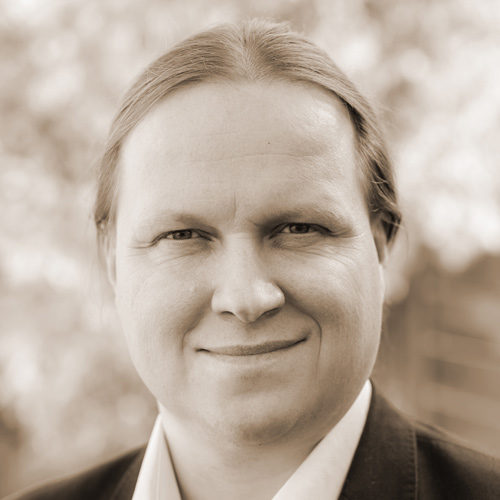 Andreas Salmhofer studied History and Political Science at the University of Vienna. He has served as a research associate at the Vienna Institute for Social Science Documentation and Methodology (WISDOM) and as chairman and academic director of the Historical Association Wechselland. He is also a correspondent of the Historical Commission for Styria (HLK). At the Mauthausen Memorial, he works as a research associate and is part of the editorial team of the open-access journal coMMents – Chronicle of the Mauthausen Memorial: Current Studies. His work focuses on developing databases on collections and individuals, as well as quantitative analyses of the Mauthausen-Gusen concentration camp system.
Andreas Salmhofer studied History and Political Science at the University of Vienna. He has served as a research associate at the Vienna Institute for Social Science Documentation and Methodology (WISDOM) and as chairman and academic director of the Historical Association Wechselland. He is also a correspondent of the Historical Commission for Styria (HLK). At the Mauthausen Memorial, he works as a research associate and is part of the editorial team of the open-access journal coMMents – Chronicle of the Mauthausen Memorial: Current Studies. His work focuses on developing databases on collections and individuals, as well as quantitative analyses of the Mauthausen-Gusen concentration camp system. -
Amanda Whitmire
Stanford University
https://orcid.org/0000-0003-2429-8879
This email address is being protected from spambots. You need JavaScript enabled to view it. 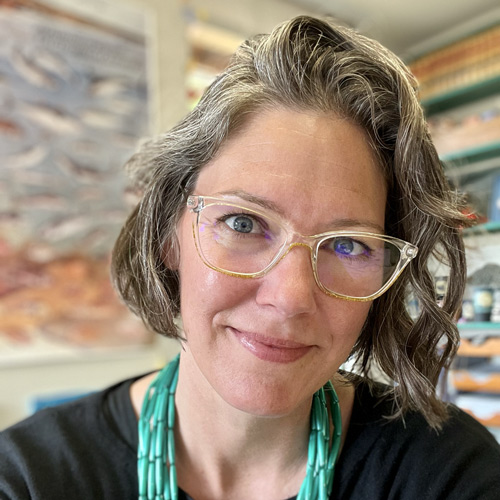 Amanda Whitmire is an oceanographer by training and a librarian by vocation. She is Head Librarian of Miller Library at the Hopkins Marine Station of Stanford University and leads the Science and Engineering Resource Group at Stanford Libraries. She earned her Bachelor’s in Aquatic Biology from the University of California, Santa Barbara, and her PhD in Oceanography from Oregon State University. Amanda focuses on data-related aspects of librarianship, supporting research data management, open scholarship, and the curation of historical and born-digital data collections at Hopkins Marine Station.
Amanda Whitmire is an oceanographer by training and a librarian by vocation. She is Head Librarian of Miller Library at the Hopkins Marine Station of Stanford University and leads the Science and Engineering Resource Group at Stanford Libraries. She earned her Bachelor’s in Aquatic Biology from the University of California, Santa Barbara, and her PhD in Oceanography from Oregon State University. Amanda focuses on data-related aspects of librarianship, supporting research data management, open scholarship, and the curation of historical and born-digital data collections at Hopkins Marine Station. -
Ryoto Akiyama
Georg-August-Universität Göttingen
This email address is being protected from spambots. You need JavaScript enabled to view it. 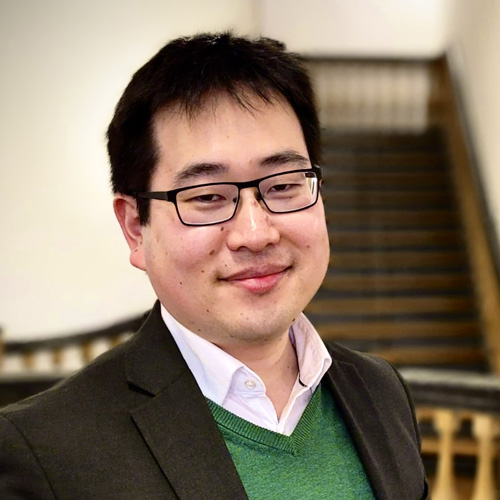 Ryoto Akiyama, PhD, is a musicologist and organologist serving as the Head of the Musical Instrument Collection at Georg-August-University Göttingen (since 2023). After earning his doctorate from the Graduate School of Letters of Osaka University, he conducted postdoctoral research at Kyoto University’s Institute for Research in Humanities and at the DIGITAL ORGANOLOGY Research Center at the University of Leipzig, as a Research Fellow of the Japan Society for the Promotion of Science. His research focuses on wind music in Christian congregations (Posaunenchor), the material culture and global history of wind instruments in the 19th century, the history of organological concepts, and digital organology.
Ryoto Akiyama, PhD, is a musicologist and organologist serving as the Head of the Musical Instrument Collection at Georg-August-University Göttingen (since 2023). After earning his doctorate from the Graduate School of Letters of Osaka University, he conducted postdoctoral research at Kyoto University’s Institute for Research in Humanities and at the DIGITAL ORGANOLOGY Research Center at the University of Leipzig, as a Research Fellow of the Japan Society for the Promotion of Science. His research focuses on wind music in Christian congregations (Posaunenchor), the material culture and global history of wind instruments in the 19th century, the history of organological concepts, and digital organology. -
Tomás Alves
Business Research Unit, University Institute of Lisbon (ISCTE-IUL)
https://orcid.org/0000-0002-5866-9327
This email address is being protected from spambots. You need JavaScript enabled to view it.  Tomás Alves is a tenure-track Assistant Researcher at the Business Research Unit (BRU), University Institute of Lisbon (ISCTE-IUL), and Co-Coordinator of Visualisation at the Digitalisation and Advanced Visualisation Data Laboratory (DAViD Lab–ISCTE). His research focuses on Information Visualisation and Human–Computer Interaction, aiming to improve how users interpret and make decisions based on visual information. His work addresses cognitive and personality differences in visualisation use, bias detection and mitigation in decision-making, and trust in visualisation design.
Tomás Alves is a tenure-track Assistant Researcher at the Business Research Unit (BRU), University Institute of Lisbon (ISCTE-IUL), and Co-Coordinator of Visualisation at the Digitalisation and Advanced Visualisation Data Laboratory (DAViD Lab–ISCTE). His research focuses on Information Visualisation and Human–Computer Interaction, aiming to improve how users interpret and make decisions based on visual information. His work addresses cognitive and personality differences in visualisation use, bias detection and mitigation in decision-making, and trust in visualisation design. -
Alexandra Torcato Alves
Fundação Calouste Gulbenkian
This email address is being protected from spambots. You need JavaScript enabled to view it. 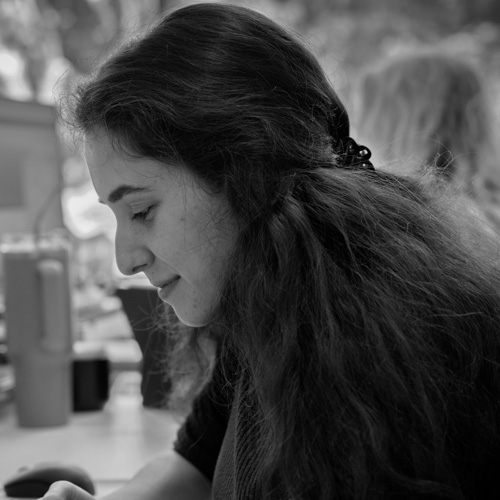 Alexandra Torcato Alves holds a Master’s degree in Cultural Heritage from NOVA University Lisbon, where she researched participatory citizenship and cultural heritage education. Her professional experience is closely tied to the Fundação Calouste Gulbenkian’s Online Collections project, where she has contributed to reviewing, organising, and publishing collection data in line with international standards. Her expertise includes digital accessibility, open data, and best practices for managing and sharing cultural heritage collections.
Alexandra Torcato Alves holds a Master’s degree in Cultural Heritage from NOVA University Lisbon, where she researched participatory citizenship and cultural heritage education. Her professional experience is closely tied to the Fundação Calouste Gulbenkian’s Online Collections project, where she has contributed to reviewing, organising, and publishing collection data in line with international standards. Her expertise includes digital accessibility, open data, and best practices for managing and sharing cultural heritage collections. -
Viktoria Calvo-Tomek
mdw – Universität für Musik und darstellende Kunst Wien
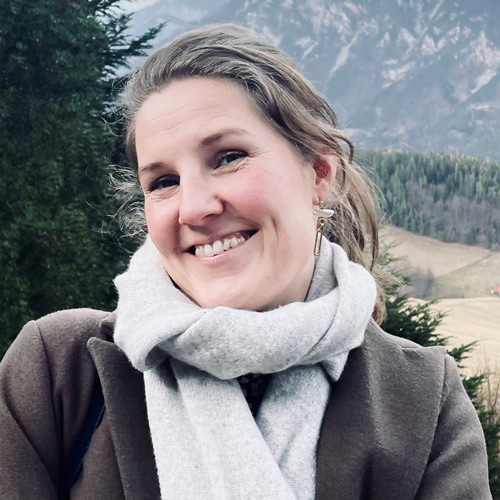 Viktoria Calvo-Tomek is an art historian and museum and collection studies scholar with strong technical expertise. She co-developed the Open Science section at the Vienna Museum of Science and Technology and currently oversees research data management at mdw, where she is responsible for the institutional repository.
Viktoria Calvo-Tomek is an art historian and museum and collection studies scholar with strong technical expertise. She co-developed the Open Science section at the Vienna Museum of Science and Technology and currently oversees research data management at mdw, where she is responsible for the institutional repository. -
Elsa Cardoso
Iscte – Instituto Universitário de Lisboa
https://orcid.org/0000-0002-5555-4567
This email address is being protected from spambots. You need JavaScript enabled to view it. 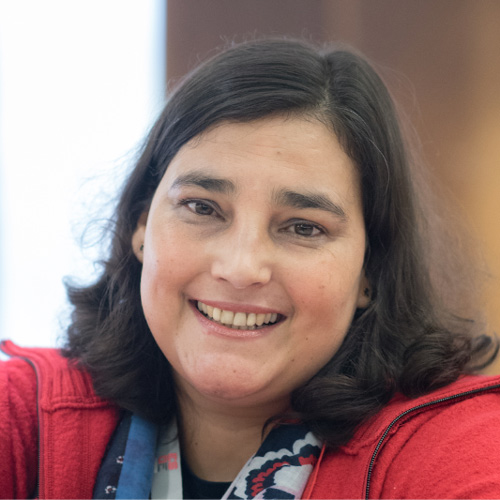 Elsa Cardoso is an Associate Professor at ISCTE – Instituto Universitário de Lisboa, in the Department of Information Science and Technology, and Director of the Master’s Programme in Integrated Business Intelligence Systems. She holds a PhD in Information Sciences and Technologies from ISCTE-IUL, specializing in Business Intelligence. She co-coordinates the data visualization area at the DAViD Lab–ISCTE and is a researcher at ISTAR–ISCTE and INESC-ID. Her expertise includes business intelligence, analytics, data visualization, and decision-support systems, particularly in higher education, science, and public administration.
Elsa Cardoso is an Associate Professor at ISCTE – Instituto Universitário de Lisboa, in the Department of Information Science and Technology, and Director of the Master’s Programme in Integrated Business Intelligence Systems. She holds a PhD in Information Sciences and Technologies from ISCTE-IUL, specializing in Business Intelligence. She co-coordinates the data visualization area at the DAViD Lab–ISCTE and is a researcher at ISTAR–ISCTE and INESC-ID. Her expertise includes business intelligence, analytics, data visualization, and decision-support systems, particularly in higher education, science, and public administration. -
Cristiana Pisoni
Università degli Studi di Bergamo
This email address is being protected from spambots. You need JavaScript enabled to view it.  Cristiana Pisoni is a Librarian and Research Support Specialist with extensive experience in university libraries, particularly in managing institutional repositories and developing training programs for doctoral students and early-career researchers. A passionate advocate of Open Science, she is skilled in open access policies, publication strategies, research metrics, and bibliometrics. She supports the implementation of transformative agreements, monitors APC costs, and advises researchers on open access publishing. Her strengths include communication, metadata curation, SQL database management, and cross-functional collaboration.
Cristiana Pisoni is a Librarian and Research Support Specialist with extensive experience in university libraries, particularly in managing institutional repositories and developing training programs for doctoral students and early-career researchers. A passionate advocate of Open Science, she is skilled in open access policies, publication strategies, research metrics, and bibliometrics. She supports the implementation of transformative agreements, monitors APC costs, and advises researchers on open access publishing. Her strengths include communication, metadata curation, SQL database management, and cross-functional collaboration. -
Alexandra Saraiva
Iscte – Dinâmia’CET, Portugal
https://orcid.org/0000-0003-3820-903X
This email address is being protected from spambots. You need JavaScript enabled to view it. 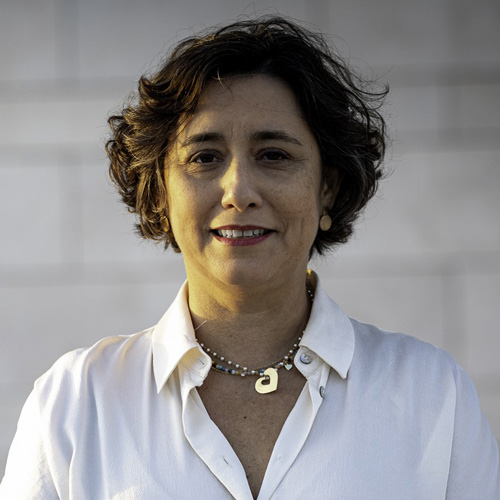 Alexandra Saraiva is an Assistant Researcher at the Centre for Studies on Socioeconomic Change and the Territory (Dinâmia’CET) at ISCTE – University Institute of Lisbon. Her research focuses on the history of contemporary architecture and urbanism in Portugal, housing studies, and architectural and urban heritage. She is also the Digitisation Coordinator at the Laboratory for Advanced Data Digitisation and Visualisation (DAViD Lab–ISCTE), where she oversees digitisation and visualisation initiatives.
Alexandra Saraiva is an Assistant Researcher at the Centre for Studies on Socioeconomic Change and the Territory (Dinâmia’CET) at ISCTE – University Institute of Lisbon. Her research focuses on the history of contemporary architecture and urbanism in Portugal, housing studies, and architectural and urban heritage. She is also the Digitisation Coordinator at the Laboratory for Advanced Data Digitisation and Visualisation (DAViD Lab–ISCTE), where she oversees digitisation and visualisation initiatives. -
Edmund K. Schiller
Naturhistorisches Museum Wien (NHMW), 3rd Zoological Department (Invertebrates except insects)
This email address is being protected from spambots. You need JavaScript enabled to view it.  Edmund K. Schiller is a member of the scientific staff at the Natural History Museum Vienna and part of the local management team for the EU-funded SYNTHESYS+ project (2019–2023). He has extensive experience in digitising museum specimens and contributing to the integration of zoological collections into international research infrastructures.
Edmund K. Schiller is a member of the scientific staff at the Natural History Museum Vienna and part of the local management team for the EU-funded SYNTHESYS+ project (2019–2023). He has extensive experience in digitising museum specimens and contributing to the integration of zoological collections into international research infrastructures. -
Gabriela Torres Ramos
CNRS – Archives Henri-Poincaré, Philosophie et Recherches sur les Sciences et les Technologies
https://orcid.org/0000-0002-8115-0566
This email address is being protected from spambots. You need JavaScript enabled to view it. /This email address is being protected from spambots. You need JavaScript enabled to view it. 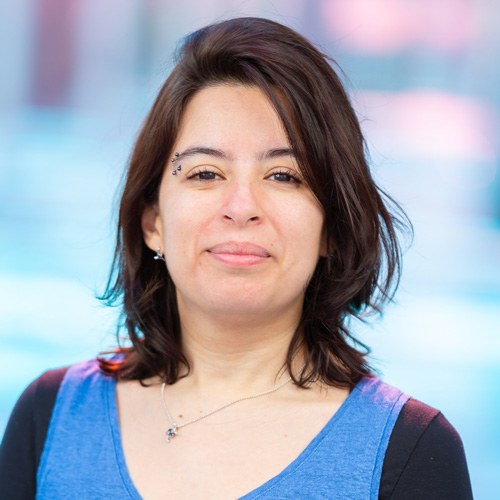 Gabriela Torres Ramos holds a PhD in Anthropology from the École Pratique des Hautes Études (EPHE, Paris). Her research explores ritual and death in Mexican traditional cultures, and the virtual communities surrounding the cult of the Holy Death. She has worked as a research assistant at the National Museum of Anthropology in Mexico and currently serves as a librarian at the CNRS laboratory Archives Henri-Poincaré. Within Skills4EOSC, she contributed to defining career profiles (MVS) and the recognition framework. In her current role, she promotes Open Science practices in research archives and fosters international networks of curators and data stewards.
Gabriela Torres Ramos holds a PhD in Anthropology from the École Pratique des Hautes Études (EPHE, Paris). Her research explores ritual and death in Mexican traditional cultures, and the virtual communities surrounding the cult of the Holy Death. She has worked as a research assistant at the National Museum of Anthropology in Mexico and currently serves as a librarian at the CNRS laboratory Archives Henri-Poincaré. Within Skills4EOSC, she contributed to defining career profiles (MVS) and the recognition framework. In her current role, she promotes Open Science practices in research archives and fosters international networks of curators and data stewards.






 Telegram
Telegram